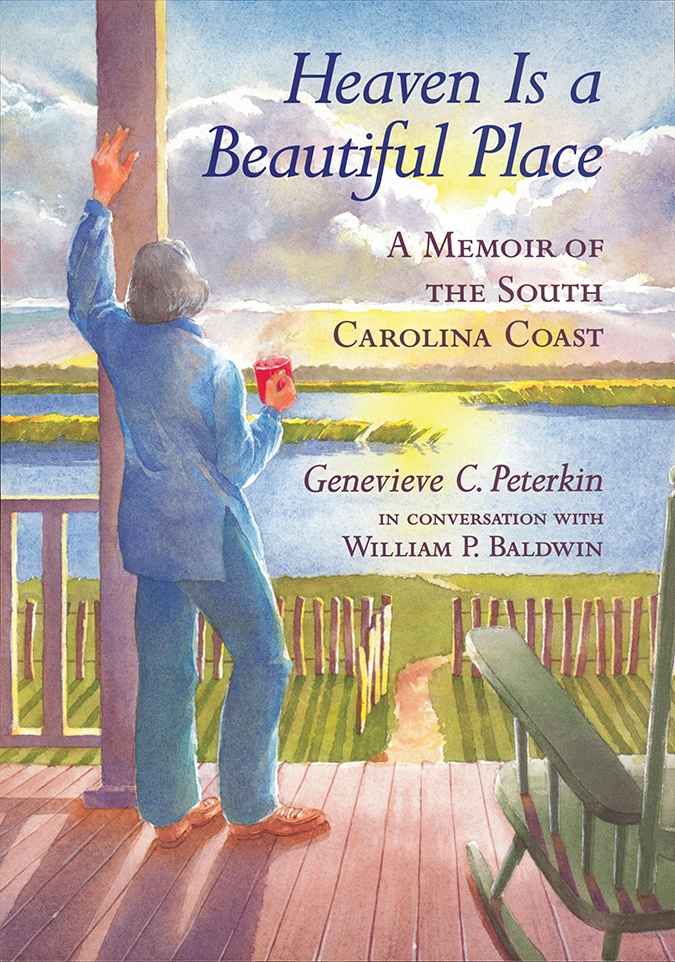 categories: Memoir & Biography, paperback, ebook, Books, South Carolina History & Culture,
Published:
Size:
Pages:
categories: Memoir & Biography, paperback, ebook, Books, South Carolina History & Culture,
Published:
Size:
Pages: 272
Illustrations:
Hardcover ISBN:
Paperback ISBN:
custom_title:
custom_subtitle:A Memoir of the South Carolina Coast
custom_byline1: Genevieve C. Peterkin
custom_byline2: foreword by Lee G. Brockington
afterword by William P. Baldwin
custom_bind:
custom_price: $
custom_addtocart:
custom_author_blurb:Local historian and environmentalist
Genevieve C. Peterkin (1928–2011) lived in Murrells Inlet, South Carolina, for most of her life.
William P. Baldwin, a lifelong resident of the South Carolina lowcountry, is the author of several works of fiction and nonfiction, including the novels
The Hard to Catch Mercy and
Charles Town.
Lee G. Brockington is a senior interpreter for the Belle W. Baruch Foundation at Hobcaw Barony in Georgetown County and the author of
Plantation between the Waters: A Brief History of Hobcaw Barony.
custom_reviews:"Titled after the popular spiritual, this book candidly depicts the life and times of many residents of the lowcountry through stories that sing of the joys and sorrows of everyday life."—
Library Journal"Peterkin's book is a treasure. Not quite an autobiography, not exactly a history, it is a very personal account of a special time and place and the people who made it so."—
State (Columbia, S.C.)"
Heaven Is a Beautiful Place is simultaneously local and universal, intimate and expansive, funny and sad. . . . The hopeful quality of Heaven comes through distinctly, especially in Peterkin's wisdom about embracing the moment."—
Charleston (S.C.) Post & Courier"Peterkin's voice and Baldwin's editing . . . give glimpses and insights into an evolving seacoast community."—
Coastal Observer"If you read one book about South Carolina this year, make it
Heaven Is a Beautiful Place."—
Lexington County Chronicle
custom_awards:
content: Born in 1928 in the small coastal town of Murrells Inlet, South Carolina, Genevieve "Sister" Peterkin grew up with World War II bombing practice in her front yard, deep-sea fishing expeditions, and youthful rambles through the lowcountry. She shared her bedroom with a famous ghost and an impatient older sister. But most of all she listened. She absorbed the tales of her talented mother and her beloved friend, listened to the stories of the region's older residents, some of them former slaves, who were her friends, neighbors, and teachers.
In this new edition she once again shares with readers her insider's knowledge of the lowcountry plantations, gardens, and beaches that today draw so many visitors. Beneath the humor, hauntings, and treasures of local history, she tells another, deeper story—one that deals with the struggle for racial equality in the South, with the sometimes painful adventures of marriage and parenthood, and with inner struggles for faith and acceptance. This edition includes a new foreword by coastal writer and researcher Lee G. Brockington and a new afterword by coauthor and lowcountry novelist William P. Baldwin.
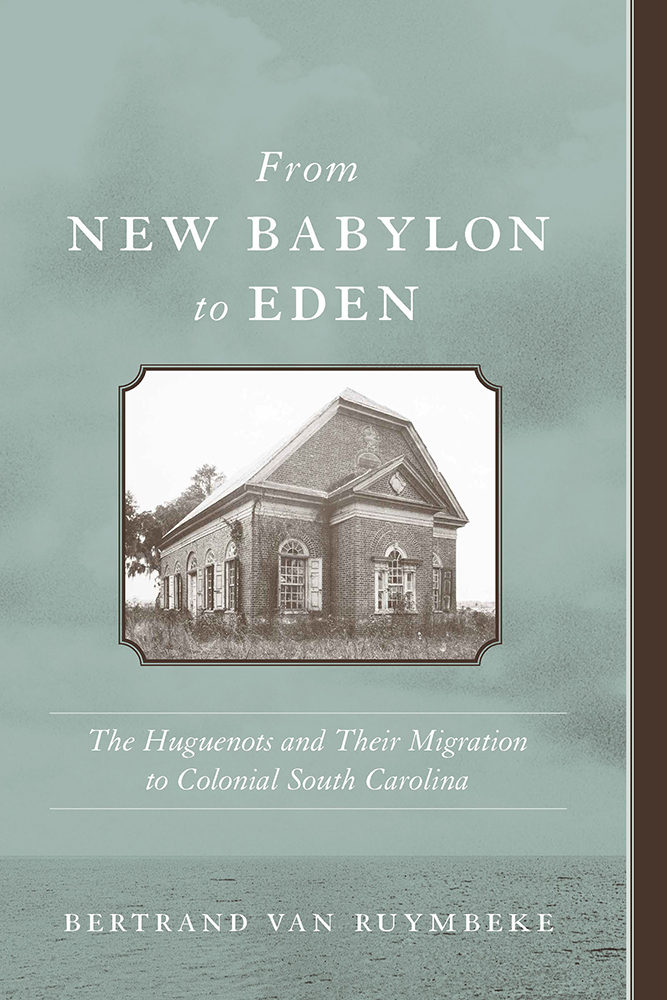 categories: Southern History, Religious Studies, Cultural Studies & Sociology, Carolina Lowcountry and the Atlantic World, paperback, ebook, Books, South Carolina History & Culture, New in Paperback,
Published:
Size:
Pages:
categories: Southern History, Religious Studies, Cultural Studies & Sociology, Carolina Lowcountry and the Atlantic World, paperback, ebook, Books, South Carolina History & Culture, New in Paperback,
Published:
Size:
Pages: 430
Illustrations:
Hardcover ISBN:
Paperback ISBN:
custom_title:
custom_subtitle:The Huguenots and Their Migration to Colonial South Carolina
custom_byline1: Bertrand Van Ruymbeke
custom_byline2: foreword by Owen Stanwood
custom_bind:
custom_price: $
custom_addtocart:
custom_author_blurb:Bertrand Van Ruymbekeis a professor of American civilization at the Universitè de Vincennes-Saint-Denis (Paris VIII). He is the coeditor of
Memory and Identity: The Huguenots in France and the Atlantic Diasporaand has published in the fields of Huguenot history, early American history, and Atlantic history.
custom_reviews:
custom_awards:
content: A revealing account of the choices French immigrants faced as they settled in South Carolina Winner of the National Huguenot Society's 2007 Book of the Year award,
From New Babylon to Edentraces the persecution of Huguenots in France and the eventual immigration of a small bloc of the French Calvinist population to proprietary South Carolina. Placing the Carolina migration in the context of the larger Huguenot diaspora, Van Ruymbeke proffers an account that challenges accepted history. Describing their settlement as a process of acculturation and creolization rather than simply assimilation, he contends that most of these French Calvinists sought to create their own churches but were thwarted by an Anglicized elite eager to dominate Anglo-Carolinian society. He also reveals that most members of the initial generation were only moderately prosperous and that it was their descendants who acquired the wealth often associated with lowcountry Huguenots. A new foreword by Owen Stanwood and preface from the author consider the continuing significance of the book nearly twenty years after its original publication.
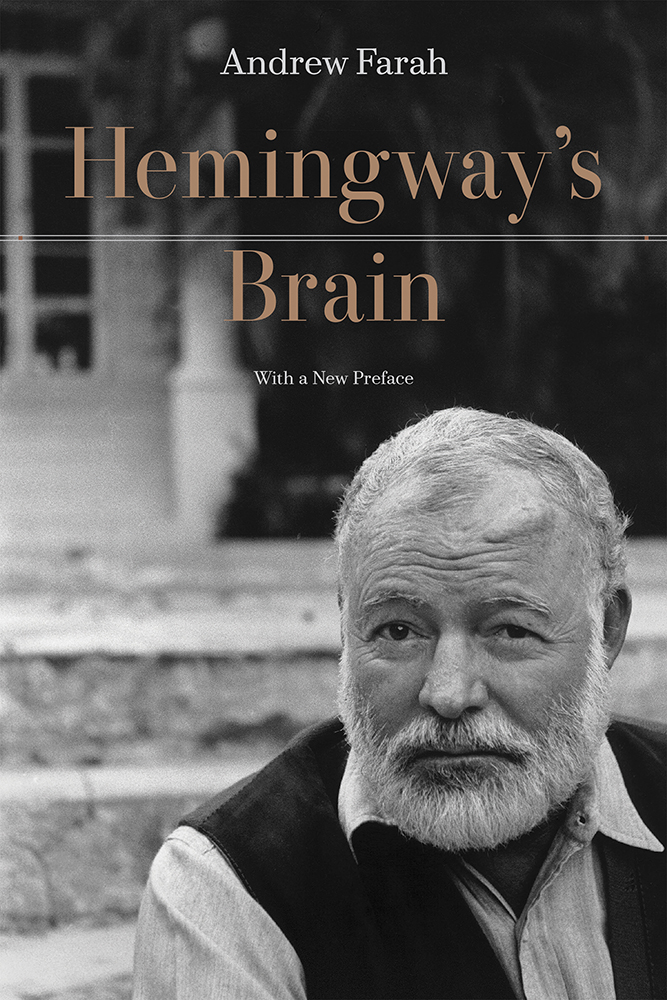 categories: Literary Studies, Memoir & Biography, paperback, ebook, Books, New in Paperback, Health, Medicine & Psychology,
Published:
Size:
Pages:
categories: Literary Studies, Memoir & Biography, paperback, ebook, Books, New in Paperback, Health, Medicine & Psychology,
Published:
Size:
Pages: 220
Illustrations:
Hardcover ISBN:
Paperback ISBN:
custom_title:
custom_subtitle:With a New Preface
custom_byline1: Andrew Farah
custom_byline2:
custom_bind:
custom_price: $
custom_addtocart:
custom_author_blurb:Andrew Farah, MD, practices integrative psychiatry in the Triad of North Carolina and frequently consults on forensic matters. A graduate of the Medical University of South Carolina, Farah completed his residency at Wake Forest University. He was named a Distinguished Fellow of the American Psychiatric Association in 2014.
custom_reviews:"Farah's book goes [deep], mixing biography, literature, and medical analysis."—
Washington Post"
Hemingway's Brain is essential reading."—
Hemingway Review"Addictively readable, intensively researched, and organized around an expert's corrective diagnosis of Hemingway's psychological states and their causes, this is an indispensable resource."—Wendy Stallard Flory, author of
The American Ezra Pound
custom_awards:
content: A forensic psychiatrist's corrective and innovative diagnosis of the conditions that led to Ernest Hemingway's suicideHemingway's Brain is the first forensic psychiatric examination of Nobel Prize-winning author Ernest Hemingway. Andrew Farah argues that, despite popular mythology, the writer did not have "manic-depressive" disorder, and his alcohol abuse and characteristic narcissism were indicators of a wholly different pathology. Assessing biographies, letters, memoirs of friends and family, and even Hemingway's FBI file, Farah has crafted a uniquely compelling narrative of Hemingway's illness.
Throughout
Hemingway's Brain, Farah explores the genetic influences, traumatic brain injuries, and neurological and psychological forces that resulted in what many have described as Hemingway's tortured final years. The paperback edition includes a new preface from the author and updates to the text reflecting the latest scientific advances in the study, prevention, and treatment of traumatic brain injuries.
 categories: ebook, hardcover, Books, South Carolina History & Culture,
Published:
Size:
Pages:
categories: ebook, hardcover, Books, South Carolina History & Culture,
Published:
Size:
Pages: 288
Illustrations:
Hardcover ISBN:
Paperback ISBN:
custom_title:
custom_subtitle:Coastal Carolina's 2016 Championship and the Rise of a Baseball Power
custom_byline1: Scott Pleasant
custom_byline2: foreword by Gary Gilmore
afterword by Kevin Schnall
custom_bind:
custom_price: $
custom_addtocart:
custom_author_blurb:Scott Pleasant is director of the Writing Center at Coastal Carolina University and is the co-author of
Lines of Scrimmage: A Story of Football, Race, and Redemption.
custom_reviews:
custom_awards:
content: An improbable dream fulfilled in one unforgettable seasonIn 2016, a mid-major team from Conway, South Carolina, shocked the college baseball world. Led by veteran head coach Gary Gilmore—who had spent two decades building a program that had once played on borrowed fields and traveled in hand-me-down vans into a national power—the Coastal Carolina Chanticleers captured their first College World Series title in dramatic fashion.
At the heart of that victory were players like G. K. Young, a Conway native and lightly recruited power hitter, whose towering home run in the deciding game ensured victory and completed Coastal's improbable run to the top. Alongside teammates like shortstop Michael Paez and ace pitcher Andrew Beckwith, Young embodied the grit and determination that defined Gilmore's program.
Tenacious and True tells the story behind Coastal's unlikely championship, capturing the voices of the players, coaches, and devoted fans who made it happen. Gifted storyteller Scott Pleasant brings readers into the dugout with a story of persistence, pride, and what it means to belong to a team—and a town.
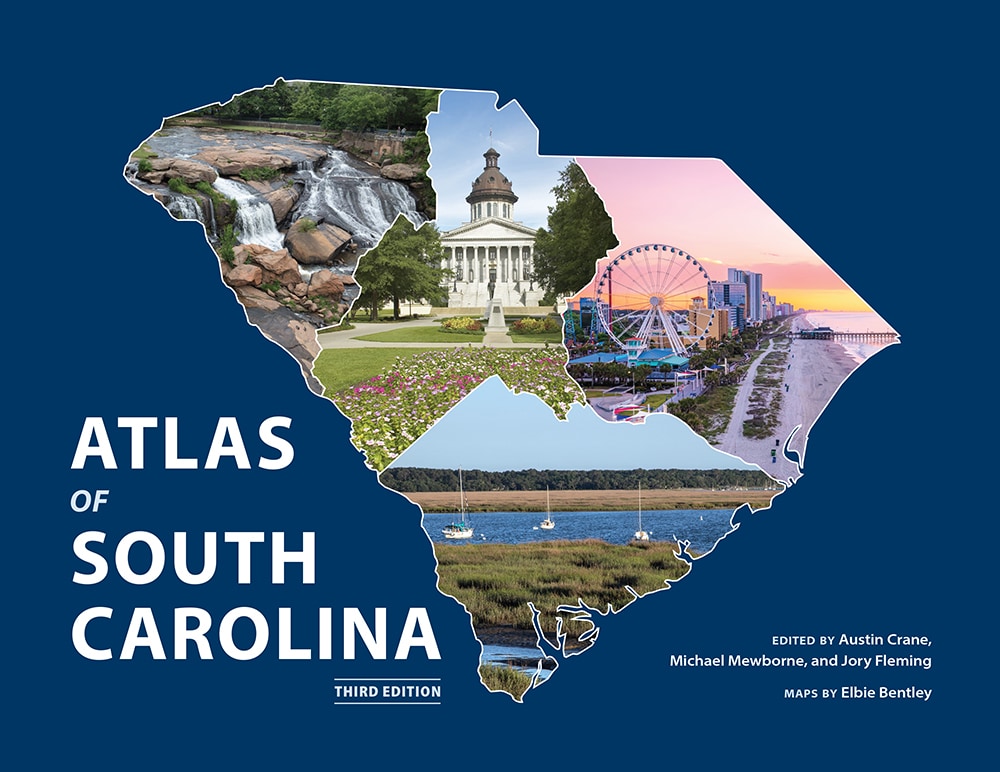 categories: Children's Literature, Reference & Guides, ebook, Forthcoming, Books, South Carolina History & Culture, spiral bound, Open Access Ebook,
Published:
Size:
Pages:
categories: Children's Literature, Reference & Guides, ebook, Forthcoming, Books, South Carolina History & Culture, spiral bound, Open Access Ebook,
Published:
Size:
Pages: 52
Illustrations:
Hardcover ISBN:
Paperback ISBN:
custom_title:
custom_subtitle:
custom_byline1: edited by Austin Crane, Michael Mewborne, and Jory Fleming
custom_byline2: illustrated by Elbie Bentley
custom_bind:
custom_price: $
custom_addtocart:
custom_author_blurb:Austin Crane holds a PhD in Geography at the University of Washington and is an instructor in the department of geography at the University of South Carolina. He is a broadly trained human geographer, with research interests including political geography, migration and borders, and poverty and inequality.
Michael Mewborne is the director of the South Carolina Geographic Alliance. He earned his Master of Arts in Teaching at the University of South Carolina and later taught World Geography and Advanced Placement Human Geography at Chapin High School in Chapin, South Carolina, and River Bluff High School in Lexington, South Carolina.
Jory Fleming is a climate scientist and educator. He is a Rhodes Scholar and Truman Scholar, holding an MPhil in environmental change and management from the University of Oxford (Worcester College), an MBA from the Quantic School of Business & Technology, and a BS in geography and marine science from the University of South Carolina.
custom_reviews:
custom_awards:
content: A rich visual illustration of South Carolina's physical, political, social, and cultural geographyWhat is the regional distribution of South Carolinians' preferred barbeque sauces? Where were colonial roads located, and how did they relate to the sites of Revolutionary War battles? Where were the key locales of protest during the civil rights movement? When is South Carolina's tornado season and where have tornadoes struck most frequently? Offering more than fifty full-color maps, the third edition of the
Atlas of South Carolina provides answers to all these questions and more, illustrating the diverse physical, cultural, political, and historical landscapes of the Palmetto State. The
Atlas of South Carolina helps readers of all ages better understand the state in which they live.
 categories: Southern History, First Cookbooks of America, hardcover, Books, Cookbooks & Foodways,
Published:
Size:
Pages:
categories: Southern History, First Cookbooks of America, hardcover, Books, Cookbooks & Foodways,
Published:
Size:
Pages: 432
Illustrations:
Hardcover ISBN:
Paperback ISBN:
custom_title:
custom_subtitle:200th Anniversary Edition
custom_byline1: Mary Randolph
custom_byline2: with commentary by Karen Hess
foreword by Debra Freeman
custom_bind:
custom_price: $
custom_addtocart:
custom_author_blurb:Mary Randolph (1762–1828) published
The Virginia House-wife in 1824.
Karen Hess (1918–2007) was an accomplished culinary historian and author and editor of numerous books, including
The Carolina Rice Kitchen (reissued 2022, USC Press). She was once called "the best American cook in Paris" by
Newsweek.
Debra Freeman is host and creator of the IACP award-winning podcast,
Setting the Table; executive producer and host of the documentary series,
Finding Edna Lewis; and food editor for
Style Weeklyin Richmond, Virginia.
custom_reviews:"An incredible snapshot of dining and Southern life before the Civil War."—Debra Freeman, from the foreword
"For those interested in history and cooking, [. . .] one of the earliest cookbooks written by an American about the food of this country."—
Southern Living"To mark the bicentennial of the publication of Mary Randolph's
The Virginia Housewife, the University of South Carolina Press has issued a new edition of Karen Hess's authoritative collated text of the first three editions. The founding book of southern cookery (the first to mingle African American, Native, and European dishes), it reflected both the taste of Thomas Jefferson, with whom Randolph had a familial connection, and that of the Virginia public whom Randolph served as a boardinghouse keeper. The first classic of American regional cookery."—David S. Shields, coauthor of
The Ark of Taste: Delicious and Distinctive Foods That Define the United States and
Taste the State: South Carolina's Signature Foods, Recipes & Their Stories
custom_awards:
content: The 200-year-old cookbook every modern food lover needs At the turn of the nineteenth century, Mary Randolph—who was among Thomas Jefferson's extended family—and her husband, US Marshall David Meade Randolph, were celebrated for their lavish hospitality. However, in 1802, Mr. Randolph was removed from office, precipitating a financial downturn. By 1808, Mrs. Randolph opened a boardinghouse, where, by all accounts, the food and accommodations were splendid. In the years that followed, she committed her culinary expertise to paper, publishing
The Virginia House-wife in 1824. It has come to be regarded as the most influential American cookbook of the nineteenth century.
This unique edition includes a complete facsimile of the original book—with recipes for delicacies such as lobster sauce and pumpkin pudding, and household tips on such things as curing bacon and making lavender water—plus additional recipes from the 1825 and 1828 editions. Historical notes by culinary historian Karen Hess explain Mary Randolph's influence on American culinary history, and a new foreword by Debra Freeman emphasizes contributions of the free and enslaved African American cooks on American cuisine.
 categories: Military History, American Revolution, ebook, hardcover, Forthcoming, Books, South Carolina History & Culture,
Published:
Size:
Pages:
categories: Military History, American Revolution, ebook, hardcover, Forthcoming, Books, South Carolina History & Culture,
Published:
Size:
Pages: 272
Illustrations:
Hardcover ISBN:
Paperback ISBN:
custom_title:
custom_subtitle:South Carolina's Militia and the Fight for American Independence
custom_byline1: Carl P. Borick
custom_byline2:
custom_bind:
custom_price: $
custom_addtocart:
custom_author_blurb:Carl P. Borick is Director of the Charleston Museum in Charleston, South Carolina, and the author of
Relieve Us of This Burthen: American Prisoners of War in the Revolutionary South, 1780-1782 (USC Press, 2011) and
A Gallant Defense: The Siege of Charleston, 1780 (USC Press, 2003).
custom_reviews:
custom_awards:
content: The Untold Story of South Carolina's Pivotal Role in the American Revolution
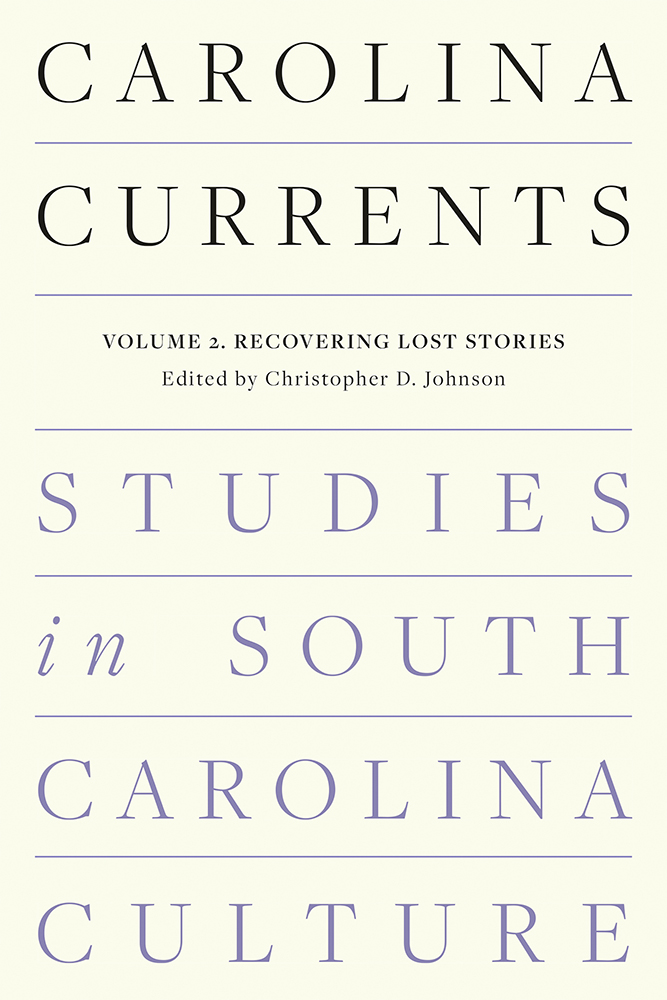 categories: Cultural Studies & Sociology, paperback, ebook, Books, South Carolina History & Culture, Travelogue & Essays, Open Access Ebook, Carolina Currents,
Published:
Size:
Pages:
categories: Cultural Studies & Sociology, paperback, ebook, Books, South Carolina History & Culture, Travelogue & Essays, Open Access Ebook, Carolina Currents,
Published:
Size:
Pages: 266
Illustrations:
Hardcover ISBN:
Paperback ISBN:
custom_title:
custom_subtitle:Volume 2. Recovering Lost Stories
custom_byline1: edited by Christopher D. Johnson
custom_byline2:
custom_bind:
custom_price: $
custom_addtocart:
custom_author_blurb:Christopher D. Johnson is professor of English and Trustees' Research Scholar at Francis Marion University. He has published more than one hundred books, essays, and reviews.
custom_reviews:"
Carolina Currents is a welcome addition to the cultural conversations of South Carolina—inclusive, diverse, incisive, overarching."—John Lane, author of
The Best of the Kudzu Telegraph
custom_awards:
content: From the Piedmont to the Lowcountry, South Carolina is the site of countless engaging stories. The contributors to
Carolina Currents share those stories, broadening our understanding of the state's unique and diverse histories and cultures. A venue for public-facing interdisciplinary scholarship, each volume presents a collection of essays that illuminates the complex interactions between the state's past and present.
Essays in volume 2 cover topics including the Universities Studying Slavery project, the civil rights movement in South Carolina, and Asian immigrants in the Upstate; a review essay discusses recent work by South Carolina poets.
With contributions from: Richard A. Almeida, Patti Burns, Joshua Casmir Catalano, Madison Cates, Robert M. Craig, Taylor Diggs, Jo Angela Edwins, Michael Emett, Mary Jo Fairchild, Kylie Fisher, Greg Garvan, Douglas E. Gray, Megan Hammeke, Lakin Hanna, Lynn Hanson, Christopher E. Hendricks, Landon Houle, Adam Houle, Christopher D. Johnson, Erica Johnson, Scott Kaufman, Eli Kibler, Jason Kirby, Eva Kiser, Felice Knight, Meredith A. Love, Natalie S. Mahaffey, Michael S. Martin, Jeremy D. Rentsch, Aïda Rogers, Steven Sims-Brewton, Rachel N. Spear
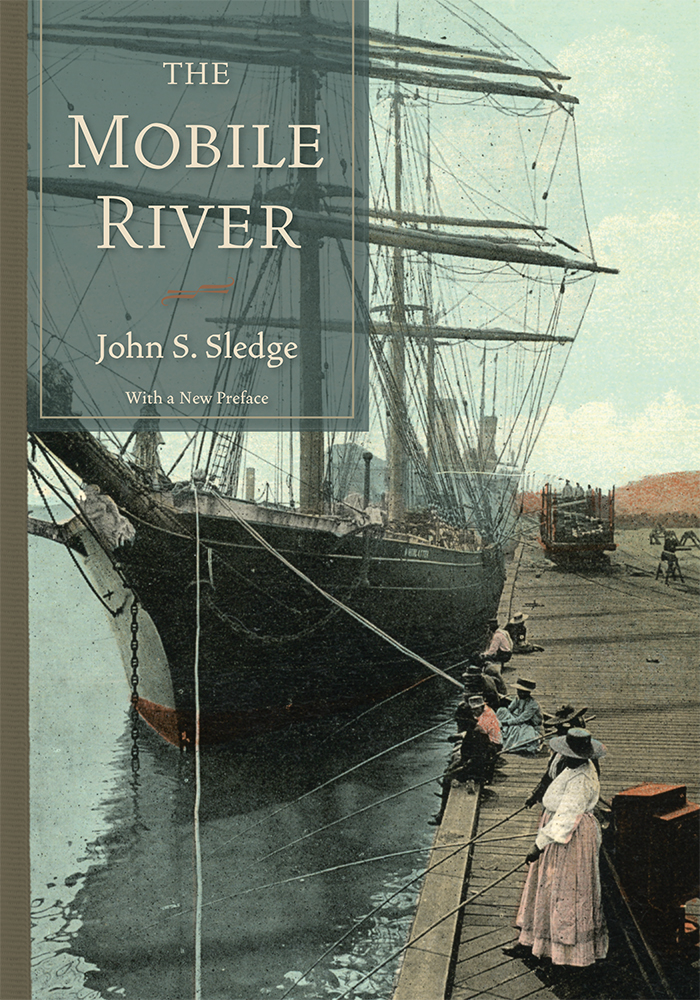 categories: Southern History, Maritime History, Bestsellers, paperback, Books, New in Paperback,
Published:
Size:
Pages:
categories: Southern History, Maritime History, Bestsellers, paperback, Books, New in Paperback,
Published:
Size:
Pages: 376
Illustrations:
Hardcover ISBN:
Paperback ISBN:
custom_title:
custom_subtitle:With a New Preface
custom_byline1: John S. Sledge
custom_byline2:
custom_bind:
custom_price: $
custom_addtocart:
custom_author_blurb:John S. Sledge is maritime historian in residence for the National Maritime Museum of the Gulf of Mexico. He is the author of eight books, including
The Gulf of Mexico: A Maritime History.
custom_reviews:"[An] exciting narrative told by a master of the material and the moment."—
Alabama Review"The book is military history, maritime history, a history of commerce, immigration and race relations, even agriculture. [One] comes away with a hugely enlarged appreciation for the dangers the river presents and with a new awareness of the complexity in the history of Alabama's Port City."—
Alabama Public Radio"An eye-opening introduction to the waterways and people that have written the history of this underappreciated region of the United States."—Lincoln Paine, author of
The Sea and Civilization: A Maritime History of the World"A fine, fascinating book. John S. Sledge introduces us to four centuries worth of heroes and rogues on one incredible American river."—Winston Groom
"This book is a must for those thirsty for knowledge."—Idgie
"Who would imagine a river only 45 miles long could encompass such a rich past - a 13th-century Mississippian chiefdom, a French-colonial counterpart to English Jamestown, the last ship carrying enslaved Africans to the US? In his evocative and well-written saga, John Sledge brilliantly explores the myriad ways human history has entwined with the Mobile River."—Gregory A. Waselkov, author of
A Conquering Spirit: Fort Mims and the Redstick War of 1813-1814"We think of rivers as natural phenomena, but as John Sledge shows, the rivers we know by name and experience are human inventions. Brimming with anecdotes, 'The Mobile River' is an eye-opening introduction to the waterways and people that have written the history of this underappreciated region of the United States."—Lincoln Paine, author of
The Sea and Civilization: A Maritime History of the World"
The Mobile River is the latest affirmation of John Sledge's extraordinary talent as a historical researcher and author. In this masterful, exquisitely crafted work, he takes us along and underneath the Mobile River and inland as well as he weaves his compelling narrative of over 300 years of our region's rich history. This book promises to be the definitive work on this topic."—David E. Alsobrook, director, History Museum of Mobile
custom_awards:2016 Clinton Jackson Coley Book Award
content: Winner of the Clinton Jackson Coley Book Award from the Alabama Historical Association In the first-ever narrative history of this important American watercourse, John S. Sledge weaves chronological and thematic elements together with personal experiences for a rich and rewarding read. Illustrated with more than sixty color and black-and-white images,
The Mobile River beautifully communicates a strong sense of place.
Beginning at Nannahubba, where the Alabama and Tombigbee Rivers meet, the Mobile River serves as the outlet for the sixth largest river basin in the United States and the largest one emptying into the Gulf of Mexico east of the Mississippi. Sledge takes readers on a journey through history framed and sometimes directed by this expansive watershed. A tale spanning colonial forts, international treaties, and thundering naval battles, and populated by characters, including Indian warriors, European diplomats, cartographers, enslaved Africans, Civil War generals, hydraulic engineers, and "Rosie the Riveter" women workers,
The Mobile River presents a pageant of conflict, struggle, and endless opportunity. In a new preface, Sledge addresses the 2018 discovery of the wreck of the Clotilda, the last slave ship to arrive in America.
 categories: Memoir & Biography, ebook, hardcover, Forthcoming, Books, Women's & Gender Studies, Queer Studies, Health, Medicine & Psychology,
Published:
Size:
Pages:
categories: Memoir & Biography, ebook, hardcover, Forthcoming, Books, Women's & Gender Studies, Queer Studies, Health, Medicine & Psychology,
Published:
Size:
Pages: 224
Illustrations:
Hardcover ISBN:
Paperback ISBN:
custom_title:
custom_subtitle:A Memoir of Colorectal Cancer and the Power of Self-Advocacy
custom_byline1: Shannon Ivey
custom_byline2:
custom_bind:
custom_price: $
custom_addtocart:
custom_author_blurb:Shannon Ivey MFA, AEA, PCC (she/they) is a queer, disabled, recovering theatre professor, union actor/director, and ICF-certified professional coach. She has performed essays on stage (story slams) for over a decade through her #whatshesaidproject and in
Jasper Magazine's Fall Lines. Before the cancer diagnosis, Ivey authored and toured a South Carolina Arts Commission grant-funded one-woman show, "Natural Disasters of the Human Kind," about the vulnerability of birth and the 1,000-year flood in Columbia. Ivey, who spent five years as a professional development trainer in health and social service organizations, has a particular interest in patient/person-centered care. She has studied narrative medicine at Columbia University and is an empowered patient leader in Colontown, an online support group for people with colorectal cancer.
custom_reviews:
custom_awards:
content: For colorectal cancer patients, the people who love them, and the professionals who care for them, a clear-eyed account of one woman's fight to survive
 categories: Southern History, Political Science, ebook, hardcover, Books,
Published:
Size:
Pages:
categories: Southern History, Political Science, ebook, hardcover, Books,
Published:
Size:
Pages: 318
Illustrations:
Hardcover ISBN:
Paperback ISBN:
custom_title:
custom_subtitle:The Rise of Judicial Elections in the Antebellum South
custom_byline1: David M. Gold
custom_byline2:
custom_bind:
custom_price: $
custom_addtocart:
custom_author_blurb:David M. Gold is an attorney who retired from the Ohio Legislative Service Commission in 2016. He is the author of numerous books on legal and political history, including
Democracy in Session and
The Jacksonian Conservatism of Rufus P. Ranney.
custom_reviews:"
Democracy and the Courts is current as well as pathbreaking. Focusing on fifteen southern and border states, Gold reviews the emergence of judicial elections and demolishes the conventional explanation that the adoption of judicial elections was designed to further the adoption of judicial review."—Steven H. Steinglass, dean emeritus and professor emeritus, Cleveland State University College of Law
"While others have written on the rise of judicial elections in the Jacksonian Era South in pieces, no one has brought together these pieces as a unified whole until Gold."—Charles Zeldon, Nova Southeastern University, author of
Bush v. Gore"Scholars should carefully note Gold's lucid, persuasive argument that the shift to an elective judiciary in the South reflected a commitment to democracy rather than a desire to buttress judicial review."—Michael Les Benedict, professor emeritus, The Ohio State University
custom_awards:
content: The first comprehensive examination of the development of judicial elections in the American South The practice of choosing state judges by popular election is a unique aspect of American democracy. First appearing in Mississippi in 1832 and then sweeping across the United States, judicial elections had a distinctly Southern origin. Prior scholarship seeking to explain the broad acceptance of the elected judiciary mainly relied on the records of Northern-state constitutional conventions. In
Democracy and the Courts, David M. Gold offers the first comprehensive exploration of the advent of this often-controversial democratic reform in the nineteenth-century American South.
Making intensive use of primary sources, such as constitutional-convention proceedings, legislative journals, and newspapers, Gold explores the various paths taken by Southern states toward the elective judiciary and the reasons why some states accepted judicial elections only partially or rejected them altogether. He considers the effect of judicial elections on judicial review before the Civil War and looks to the last quarter of the nineteenth century, assessing the final and ironic triumph of the elective judiciary during the decidedly undemocratic Jim Crow era.
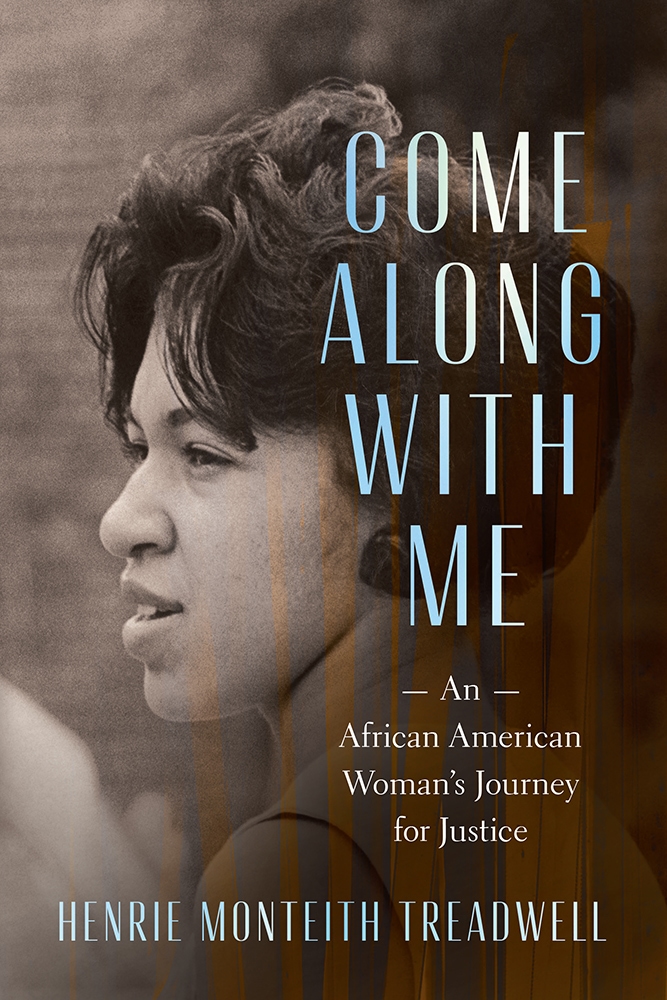 categories: Memoir & Biography, African American Studies, ebook, hardcover, Forthcoming, Books, Women's & Gender Studies, South Carolina History & Culture, Education Policy & History,
Published:
Size:
Pages:
categories: Memoir & Biography, African American Studies, ebook, hardcover, Forthcoming, Books, Women's & Gender Studies, South Carolina History & Culture, Education Policy & History,
Published:
Size:
Pages: 232
Illustrations:
Hardcover ISBN:
Paperback ISBN:
custom_title:
custom_subtitle:An African American Woman's Journey for Justice
custom_byline1: Henrie Monteith Treadwell
custom_byline2:
custom_bind:
custom_price: $
custom_addtocart:
custom_author_blurb:Henrie Monteith Treadwell was the first African American woman to attend and graduate from the University of South Carolina. She later earned a PhD in biochemistry and molecular biology from Atlanta University. She was program director for the W. K. Kellogg Foundation and is a world-renowned public health expert affiliated with the Morehouse School of Medicine.
custom_reviews:"
Come Along with Me explores the intersections between race, gender, employment, and public health, all through the life of one remarkable woman."—Brian J. Daugherity, author of
Keep On Keeping On"Treadwell's masterful reflection is personally and professionally grounded in moral and practical imperatives of social justice advocacy and shows what it means to be a lifelong 'child of the struggle.' With every door entered, table sat around, and budgetary input, Treadwell connects the biases confronting the nation (and the globe) and offers examples of real-world solutions."—Millicent Brown, author of
Another Sojourner Looking for Truth"Dr. Henrie Monteith Treadwell's powerful and inspiring memoir is a must-read,— reflecting her tremendous courage, leadership, and lifelong commitment to health equity and social justice."—La June Montgomery Tabron, president and CEO of the W.K. Kellogg Foundation
custom_awards:
content: The first Black woman graduate of the University of South Carolina recounts a life of activism and service Come Along with Me is a compelling memoir of resilience, activism, and breaking barriers in the causes of health equity and social justice. Henrie Monteith Treadwell recounts her personal and legal struggles to become the first African American student admitted to the University of South Carolina since Reconstruction, a pivotal moment in civil rights history. More than a personal narrative, the book is a call to action, inspiring young people of color—especially women—to push forward against systemic injustices.
Through reflections on her experiences and accomplishments in health advocacy, policy reform, and social justice, Treadwell highlights the continued struggles for racial and gender equity in higher education, health care, and beyond. In
Come Along with Me, Treadwell underscores the importance of acknowledging historical injustices while actively working toward a more inclusive and just society. For anyone committed to change—whether in education, health care, philanthropy, or public policy—these pages provide rich evidence that progress is possible when individuals challenge barriers, demand justice, and open doors for future generations. Treadwell's memoir is a testament to the power of perseverance and the necessity of collective action in shaping a better world.
Published in cooperation with the University of South Carolina Division of Access, Civil Rights, and Community Engagement.
 categories: Southern History, Civil War, Military History, Memoir & Biography, ebook, hardcover, Forthcoming, Books,
Published:
Size:
Pages:
categories: Southern History, Civil War, Military History, Memoir & Biography, ebook, hardcover, Forthcoming, Books,
Published:
Size:
Pages: 432
Illustrations:
Hardcover ISBN:
Paperback ISBN:
custom_title:
custom_subtitle:Lieutenant General Richard H. Anderson at War and Peace
custom_byline1: Edward J. Hagerty
custom_byline2:
custom_bind:
custom_price: $
custom_addtocart:
custom_author_blurb:Edward J. Hagerty teaches history at American Military University and Leadership classes at the Air Force Global College. He is author of
Collis' Zouaves: The 114th Pennsylvania Volunteers in the Civil War and
The Air Force Office of Special Investigations, 1948-2000.
custom_reviews:
custom_awards:
content: Military biography of Lt. Gen. Richard H. Anderson, whose career led him from West Point to Mexico, Charleston to Appomattox Soldier of the South is the first comprehensive examination of Anderson's life, providing a view of an officer's experiences on the frontier, in Mexico, and during the American Civil War. Anderson led Confederate soldiers first in Florida, then from the Peninsula Campaign to Sailor's Creek, where his patchwork corps disintegrated. Edward J. Hagerty considers both the strategic details of Anderson's failures and successes on the battlefield and his personal struggles off it. One of Robert E. Lee's corps commanders, Anderson was the most senior ranking soldier from South Carolina, yet he fell into relative obscurity after the war. Hagerty examines the causes for Anderson's postwar decline and makes the case for his continued significance.
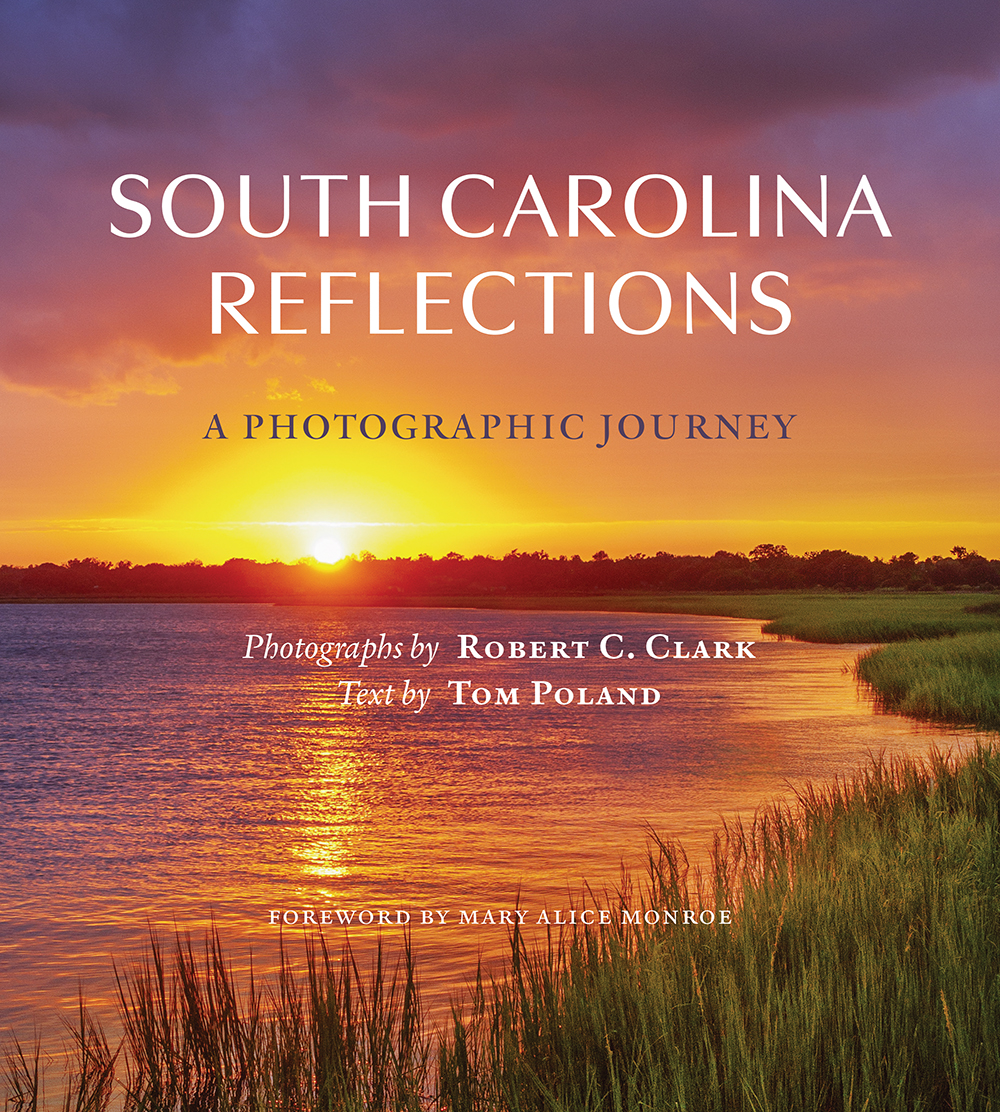 categories: Outdoors & Nature, Art & Photography, hardcover, New & Noteworthy, Books, South Carolina History & Culture,
Published:
Size:
Pages:
categories: Outdoors & Nature, Art & Photography, hardcover, New & Noteworthy, Books, South Carolina History & Culture,
Published:
Size:
Pages: 192
Illustrations:
Hardcover ISBN:
Paperback ISBN:
custom_title:
custom_subtitle:A Photographic Journey
custom_byline1: photographs by Robert C. Clark
custom_byline2: text by Tom Poland
foreword by Mary Alice Monroe
custom_bind:
custom_price: $
custom_addtocart:
custom_author_blurb:A native of Charlotte, North Carolina,
Robert C. Clark's photographs have appeared in his own books,
National Geographic books,
Newsweek, and
Smithsonian Magazine, among other publications, as well as in photographic awards annuals such as
Print and Communications Arts. He has photographed seven books on South Carolina and is a member of the Professional Photographers of America (PPA). Clark lives in Irmo, South Carolina.
Tom Poland is an award-winning writer and recipient of the Order of the Palmetto, South Carolina's highest civilian honor. His career includes publishing books and a weekly column, magazine writing and editorship, filmmaking, and photography. Poland's speaking engagements about the South, its people, culture, and natural features are held throughout Georgia and the Carolinas. A Georgia native and graduate of the University of Georgia, he lives in Columbia, South Carolina.
custom_reviews:
custom_awards:
content: A luminous visual survey of South Carolina's splendorFrom the Appalachians to the Atlantic, scenes of South Carolina's awe-inspiring beauty shine in
South Carolina Reflections: A Photographic Journey — a stirring visual tribute to one of America's most varied landscapes and favorite destinations.
The culmination of photographer Robert C. Clark and writer Tom Poland's three-decade collaboration, which includes the two classic
Relfections of South Carolina volumes, this keepsake book offers new, comprehensive coverage of the entire state in a single volume. Clark and Poland present the geological grandeur, natural beauty, and cultural diversity the Palmetto State boasts across its 32,000 square miles. Rich with more than fifty new photographs — 147 stunning color images in all —
South Carolina Reflections stands as a fresh, frame-worthy gallery, highlighting South Carolina's allure. Few see South Carolina as Clark and Poland do.
Their words and photographs capture a landscape abundant with captivating rivers, lakes, surf, and vistas, and overflowing with flora and fauna. During their travels to discover and document the state's beauty, the pair uncovered charming country stores, water-powered gristmills, enchanting meadows, and extraordinary people and places. From angles high and low, the photographs illuminate the state's craggy summits, blackwater swamps, cascading waterfalls, and remote islands. The foreword by
New York Times best-selling author Mary Alice Monroe complements the text and images.
For visitors to the state and especially for generations of proud South Carolinians,
South Carolina Reflections is a treasurable gift and timeless portrait of the wonders of the Palmetto State.
 categories: Southern History, ebook, hardcover, New & Noteworthy, Books, Native American Studies,
Published:
Size:
Pages:
categories: Southern History, ebook, hardcover, New & Noteworthy, Books, Native American Studies,
Published:
Size:
Pages: 392
Illustrations:
Hardcover ISBN:
Paperback ISBN:
custom_title:
custom_subtitle:Virginia Colonialism into Native Country, 1670–1776
custom_byline1: Anthony S. Parent Jr.
custom_byline2:
custom_bind:
custom_price: $
custom_addtocart:
custom_author_blurb:Anthony S. Parent Jr. is professor emeritus of history, African American Studies, and American ethnic studies at Wake Forest University.
custom_reviews:"This stunning book is the crowning achievement of a leading colonial historian. Anthony S. Parent Jr.'s
Flocks of Birds invites history readers to soar over vital, unfamiliar territory."—Peter H. Wood, Duke University, author of
Black Majority"Tracking the ever-shifting alliances and enmities among the kaleidoscopically diverse peoples so scantily summarized as European, African, and Indigenous, Anthony S. Parent Jr. accomplishes the monumental task of conveying all that nuance in a clear and compelling narrative."—Woody Holton, University of South Carolina, author of
Liberty Is Sweet"A worthy synthesis of recent scholarship, Anthony S. Parent Jr.'s
Flocks of Birds highlights the importance of Native actors in the colonial period."—Kristalyn Marie Shefveland, Southern Indiana University, author of
Anglo-Native Virginia
custom_awards:
content: Centers Indigenous people and voices in the history of the vast expansion of Virginia colonialism into Appalachia Flocks of Birds is an inclusive and interconnected history of the Virginia colony, one that demonstrates the centrality of Native history to America's colonial history. By delving deep into the primary record, Anthony S. Parent explores the evolving Indigenous response to Virginia colonialism in Native country across three generations, from 1670 to 1776.
As Virginia colonists expanded their settlements west from the Tidewater, they entered a region that was far from uninhabited wilderness. In 1685 more than 100,000 Indigenous people from dozens of nations lived in the Southern Appalachians. These were different groups than the Tsenacomoco (the Powhatan Paramount chiefdom) that colonists had encountered when they established their first permanent settlements along the coast. They included Susquehannock in the north; Shawnee and Seneca-Cayuga (Mingo) in the northwest; Saponi in the west; Tuscarora and Yamasee in the south; and the Ani'-Yun-wiya (Cherokee) in the southwest, among many others. Parent explores the complex interactions amongst and between Indigenous people, European colonists, and enslaved Africans.
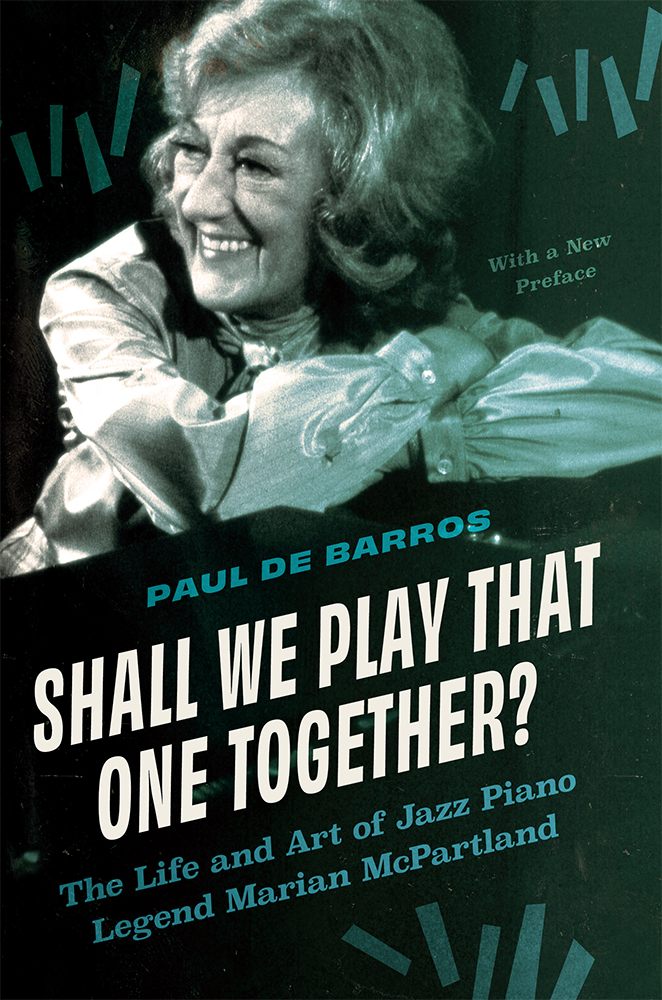 categories: Memoir & Biography, Music & Theater, paperback, ebook, Books, Women's & Gender Studies, New in Paperback, Audiobook,
Published:
Size:
Pages:
categories: Memoir & Biography, Music & Theater, paperback, ebook, Books, Women's & Gender Studies, New in Paperback, Audiobook,
Published:
Size:
Pages: 520
Illustrations:
Hardcover ISBN:
Paperback ISBN:
custom_title:
custom_subtitle:The Life and Art of Jazz Piano Legend Marian McPartland, With a New Preface
custom_byline1: Paul de Barros
custom_byline2:
custom_bind:
custom_price: $
custom_addtocart:
custom_author_blurb:Paul de Barros is an award-winning jazz critic and the author of
Jackson Street After Hours: The Roots of Jazz in Seattle. He has written for
DownBeat and
The Seattle Times since 1982.
custom_reviews:"This book is, in short, one of the best jazz biographies of the past decade, and it will likely inspire the reader to go back and listen to the subject's albums and radio broadcasts."—
JazzTimes"Throughout, McPartland's openness and de Barros's careful writing create a holistic portrait of one of this century's most important jazz pianists."—
DownBeat"No matter how much anyone thinks they know about Marian's life, Paul de Barros reveals so much information hidden from her fans with his comprehensive exploration of her life and career."—
Hot House Jazz Guide
custom_awards:
content: The life of the unparalleled purveyor of the Great American Songbook, Marian McPartland, is celebrated in this engrossing biographyFrom Bobby Short to Esperanza Spalding, across the 33-year run of the acclaimed radio show
Piano Jazz, Marian McPartland conversed and played piano duets with jazz greats and, via National Public Radio syndication, brought the best of jazz standards to listeners. In
Shall We Play That One Together?, Paul de Barros considers McPartland's full life and shows her to have been a courageous compositional innovator as well as an immensely talented popularizer and educator. Her standing among jazz artists and her advocacy for women jazz musicians made McPartland a natural to host
Piano Jazz show, conceived in 1978, and first broadcast on WLTR out of Columbia, South Carolina, in 1979. That show secured her reputation in the musical form and allowed her to introduce American and then global audiences to a diverse array of musicians developing the Great American Songbook.
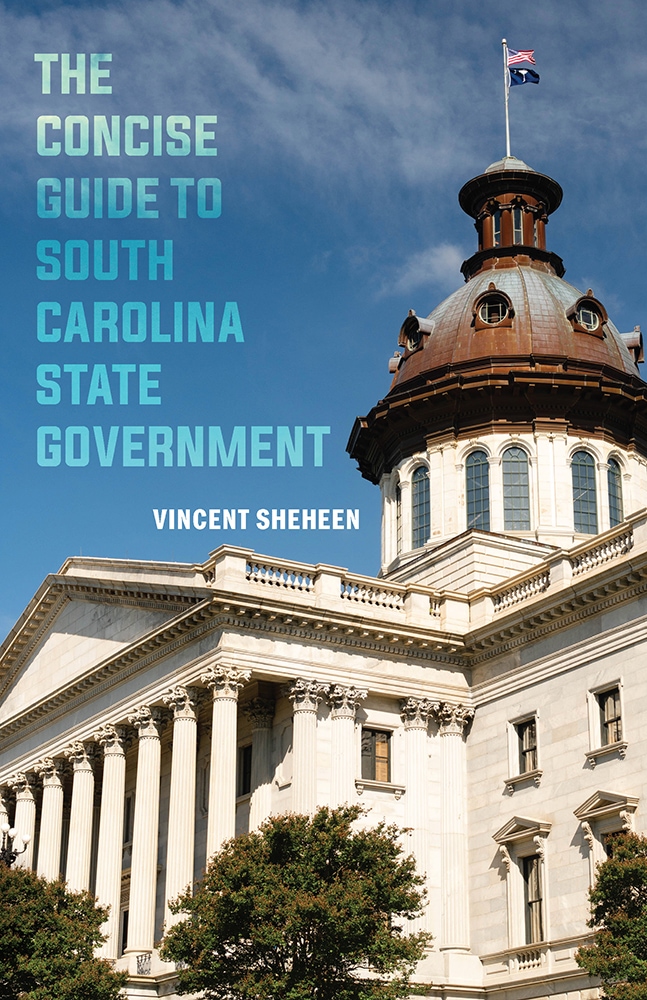 categories: Political Science, paperback, ebook, hardcover, Forthcoming, Books, South Carolina History & Culture,
Published:
Size:
Pages:
categories: Political Science, paperback, ebook, hardcover, Forthcoming, Books, South Carolina History & Culture,
Published:
Size:
Pages: 164
Illustrations:
Hardcover ISBN:
Paperback ISBN:
custom_title:
custom_subtitle:
custom_byline1: Vincent Sheheen
custom_byline2:
custom_bind:
custom_price: $
custom_addtocart:
custom_author_blurb:Vincent Sheheen is an attorney and former state senator, and was elected Mayor of Camden, SC, in 2024. He has taught at the University of South Carolina Honors College and Joseph F. Rice School of Law as well as the Francis Marion University Non-Profit Institute. Sheheen is cohost of the podcast
Bourbon in the Back Room and has published numerous essays, articles, and the book,
The Right Way: Getting the Palmetto State Back on Track.
custom_reviews:"A student of state history and politics, Senator Sheheen chronicles the good, the bad, the sublime, and the ridiculous across our state institutions. Drawing on his firsthand expertise, he adds insights distinctly missing (or conspicuously omitted) from earlier writing on this subject."—Dr. Luther F. Carter, president, Francis Marion University
custom_awards:
content: An insider's guide to the government of the Palmetto State In
The Concise Guide to South Carolina State Government, former state senator Vincent Sheheen provides an engaging and accessible overview of the structures of the state's government and how they came to be. Sheheen covers the history of South Carolina's government, the legislative branch, the executive branch, the judicial branch, state agencies, and local government, with the insight that only someone who has walked the corridors of the State House in Columbia can provide. Throughout, profiles of a key figures such as Solomon Blatt (the first Jewish speaker of the house) and Jean Hoefer Toal (the first woman to serve on the state Supreme Court and as chief justice), animate the text.
For elected officials, government professionals, teachers, students, media on the politics beat, and political junkies,
The Concise Guide to South Carolina State Government will become the first place to go to learn about why the Palmetto State works the way it does.
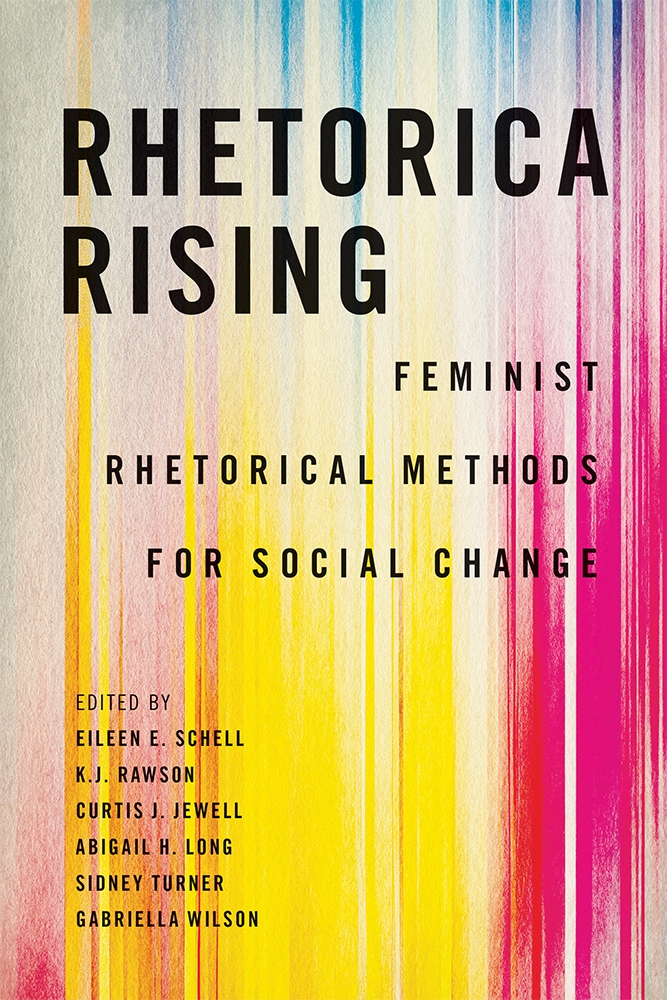 categories: Rhetoric & Communication, paperback, ebook, hardcover, Movement Rhetoric Rhetoric's Movements, Forthcoming, Books, Women's & Gender Studies, Queer Studies,
Published:
Size:
Pages:
categories: Rhetoric & Communication, paperback, ebook, hardcover, Movement Rhetoric Rhetoric's Movements, Forthcoming, Books, Women's & Gender Studies, Queer Studies,
Published:
Size:
Pages: 274
Illustrations:
Hardcover ISBN:
Paperback ISBN:
custom_title:
custom_subtitle:Feminist Rhetorical Methods for Social Change
custom_byline1: edited by Eileen E. Schell, K.J. Rawson, Curtis J. Jewell, Abigail H. Long, Sidney Turner, and Gabriella Wilson
custom_byline2:
custom_bind:
custom_price: $
custom_addtocart:
custom_author_blurb:Eileen E. Schell is professor of writing and rhetoric and Laura J. and L. Douglas Meredith Professor of Teaching Excellence at Syracuse University.
K.J. Rawson is professor of English and women's, gender, and sexuality studies, and director of the Humanities Center, at Northeastern University. Schell and Rawson's numerous publications include the coedited volume
Rhetorica in Motion: Feminist Rhetorical Methods and Methodologies.
Curtis J. Jewell,
Abigail H. Long,
Sidney Turner, and
Gabriella Wilson, are pursuing doctoral degrees in the Composition and Cultural Rhetoric program at Syracuse University.
custom_reviews:"In
Rhetorica Rising contributors recount novel, embodied methodologies for pushing the boundaries of feminist scholarly inquiry, interpreting ways in which hybrid research methods might be applied, expanded, and reconsidered and locating their reimaginings within discussions of positionality and social issues, cultural rhetorics, and activism."—Lynée Lewis Gaillet, Georgia State University, coeditor of
Remembering Women Differently"
Rhetorica Rising is a bold, brilliant celebration of feminism's rhetorical power to ignite real social change. This gathering of essential scholars provides needed clarity, conviction, and insight. This is must-read for anyone ready to raise their voice in this moment."—Aja Y. Martinez, University of Illinois Urbana-Champaign, author of
Counterstory"
Rhetoric Rising is a much-anticipated extension of the excellent work started in
Rhetorica in Motion. Contributors offer feminist scholars tools, visions, and methods that are urgently needed in these tumultuous times!"—Rebecca Dingo, University of Massachusetts, author of
Networking Arguments
custom_awards:
content: Advancing feminist rhetorical methods for social change In a world marked by political polarization and racial, sexist, ableist, and class-based injustices, feminist rhetorical research is vital to ongoing struggles for social justice—in communities, in digital spaces, and in classrooms.
Rhetorica Rising introduces a range of feminist rhetorical methods and methodologies that can help us understand social justice movements, past and present.
The collection highlights how the field of rhetorical studies has evolved over the past decade, taking up the challenge of creating intersectional feminist scholarship that engages with BlPOC histories and rhetorics, decolonial rhetorics, digital studies, disability studies, queer studies, transnational studies, and discourses regarding reproductive justice.
Includes essays by: Rachel Bloom-Pojar, Christina V. Cedillo, Sarah Madoka Currie, Jessica Enoch, Tarez Samra Graban, Michael Healy, Ada Hubrig, Curtis J. Jewell, Stephanie Jones, Danielle Koepke, Rachel Lewis, Abigail H. Long, Andrea Riley Mukavetz, Timothy Oleksiak, K.J. Rawson, Jessica Restaino, Nelesi Rodrigues, Eileen E. Schell, Megan Schoettler, Sidney Turner, Gabriella Wilson, Carly S. Woods
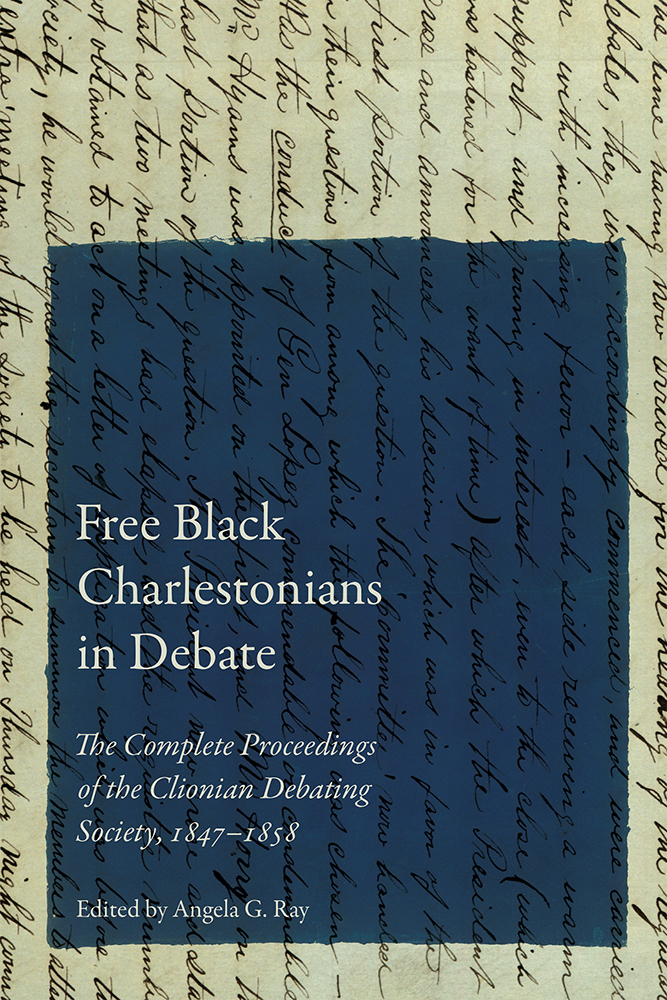 categories: Rhetoric & Communication, African American Studies, paperback, ebook, hardcover, Books, South Carolina History & Culture, Open Access Ebook,
Published:
Size:
Pages:
categories: Rhetoric & Communication, African American Studies, paperback, ebook, hardcover, Books, South Carolina History & Culture, Open Access Ebook,
Published:
Size:
Pages: 214
Illustrations:
Hardcover ISBN:
Paperback ISBN:
custom_title:
custom_subtitle:The Complete Proceedings of the Clionian Debating Society, 1847–1858
custom_byline1: edited by Angela G. Ray
custom_byline2:
custom_bind:
custom_price: $
custom_addtocart:
custom_author_blurb:Angela G. Ray is associate professor of communication studies at Northwestern University. She is the author of
The Lyceum and Public Culture in the Nineteenth-Century United States.
custom_reviews:"
Free Black Charlestonians in Debate is an insightful case study of elite free Blacks' vibrant yet frustrated intellectual life and quest for learning and respectability in late antebellum slaveholding Charleston."—Bernard E. Powers Jr., Director of the Center for the Study of Slavery in Charleston and professor emeritus, College of Charleston
"A significant contribution to our understanding of Black freedom in the antebellum South."—John Garrison Marks, American Association of State and Local History, author of
Black Freedom in the Age of Slavery"With remarkable insight and care,
Free Black Charlestonians in Debate illuminates a vibrant example of nineteenth-century Black intellectual culture and the joy of thinking and learning together."—Carly S. Woods, University of Maryland, author of
Debating Women
custom_awards:
content: The comprehensive, never-before-published records of a debating society run by free Black men From 1847 until 1858, when "political disadvantages" prompted its dissolution, the Clionian Debating Society, a group of young free Black men, met regularly in Charleston, South Carolina. Reconstruction-era leaders such as Henry Cardozo, who would serve in the South Carolina legislature, and Simeon W. Beaird, who was elected to Georgia's state constitutional convention in 1867, were among its membership.
Free Black Charlestonians in Debate brings together the Clionian Society's minutes in a comprehensive scholarly edition, reuniting the two original handwritten volumes that are now housed in the collections of the Charleston Library Society and Duke University. The annotated transcription is supported by an introduction, appendixes summarizing key features of the society's membership and operations, recommendations for further reading, and an index. Made easily accessible for the first time, these minutes represent an important piece of Black intellectual history that offers insight into the educational training of young men of the free Black community in pre-Civil War Charleston.
 categories: Southern History, Reconstruction Era, African American Studies, paperback, ebook, hardcover, Reconstruction Reconsidered, Books, Historic Preservation,
Published:
Size:
Pages:
categories: Southern History, Reconstruction Era, African American Studies, paperback, ebook, hardcover, Reconstruction Reconsidered, Books, Historic Preservation,
Published:
Size:
Pages: 272
Illustrations:
Hardcover ISBN:
Paperback ISBN:
custom_title:
custom_subtitle:Restoring the History of Emancipation and Citizenship in Yorktown, Virginia, 1861–1940
custom_byline1: Rebecca Capobianco Toy
custom_byline2:
custom_bind:
custom_price: $
custom_addtocart:
custom_author_blurb:Rebecca Capobianco Toy is interpretation and engagement coordinator for the Washington, DC, Office of the National Park Service. She received the National Park Service's Freeman Tilden Interpretation Award, and her work has appeared in
Civil War History.
custom_reviews:"Rebecca Capobianco Toy's extensive research and effective use of available source material have combined to produce a work that contributes not only to the scholarship on post-emancipation Virginia and the development of vibrant Black communities across the postwar South but also to broader understandings of the extent to which preservation of certain historical narratives and landscapes can actively contribute to the erasure of others."—Jill Ogline Titus, Civil War Institute, Gettysburg College, author of
Gettysburg 1963"A timely demonstration of the active role that Black Southerners played in shaping the world that emerged after emancipation."—Daniel B. Thorp, Virginia Tech, author of
Facing Freedom"Rebecca Capobianco Toy's
Landscapes of Freedom reminds us why so many of the very best works of history focus on particular geographies, finding the complexity of the world in a tightly bound area, in this case York County, Virginia, and the community of 'Slabtown.' A truly fine study that should be read by all nineteenth-century scholars."—Gregory P. Downs, University of California, Davis, author of
After Appomattox
custom_awards:
content: Revelations of the profound effect and long legacy of America's post-Civil War Reconstruction In
Landscapes of Freedom, Rebecca Capobianco Toy tells the story of an emblematic community of freedpeople during the Civil War era. Some of the earliest acts of wartime emancipation happened in the Tidewater of Virginia, where enslaved people voted with their feet and escaped the Confederacy by crossing into US Army lines. At Yorktown, Virginia, freedpeople developed their own self-governing enclave near (and in some cases on) the Revolutionary War battlefield. Toy describes that Black community, its formation, and its development well into the twentieth century. She traces the effect of Reconstruction policy and the consequences that its subsequent rollback had on the lives of Black citizens.
Toy also documents the Black community's attempts to commemorate its members' role in the Civil War. The Black community fought to retain that memory, one that challenged not only the Lost Cause interpretation of the war but also the federal government's efforts to privilege the Revolutionary memory of Yorktown while ignoring its ongoing role in the story of American freedom.
 categories: Art & Photography, Memoir & Biography, African American Studies, ebook, hardcover, Forthcoming, Books, South Carolina History & Culture,
Published:
Size:
Pages:
categories: Art & Photography, Memoir & Biography, African American Studies, ebook, hardcover, Forthcoming, Books, South Carolina History & Culture,
Published:
Size:
Pages: 248
Illustrations:
Hardcover ISBN:
Paperback ISBN:
custom_title:
custom_subtitle:The Art and Activism of Edwin Augustus Harleston
custom_byline1: M. Akua McDaniel
custom_byline2:
custom_bind:
custom_price: $
custom_addtocart:
custom_author_blurb:Akua McDaniel is retired associate professor of art history at Spelman College. She was founding director of the Spelman College Museum of Fine Art and is the nation's leading scholar of Edwin A. Harleston.
custom_reviews:
custom_awards:
content: The first full-length biography of one of South Carolina's most significant African American visual artists Excluded from the Charleston Renaissance because of his race and pushed to the edges of the Harlem Renaissance by geography and circumstance, Edwin Augustus Harleston was an artist caught between worlds. Despite being marginalized within his hometown of Charleston, South Carolina, during his lifetime, Harleston nonetheless pursued his career as a painter, first at Charleston's Avery Institute, later at Atlanta University and the School of the Museum of Fine Arts in Boston. Harleston received commissions and had gallery exhibitions that received critical praise in northern cities. When the demands of family pulled him back to Charleston, where he struggled to find the same freedom or acclaim that he had enjoyed in the North.
In
A Dream Deferred, Akua McDaniel offers the first comprehensive biography of Harleston. McDaniel considers not only his efforts to redefine the image of Black life in American visual culture, but she also examines Harleston's life as a social and political activist, including his role in founding the first NAACP chapter in South Carolina. McDaniel offers a full portrait of Harleston's life and career, one that had an outsized impact on the American art world, and beyond.
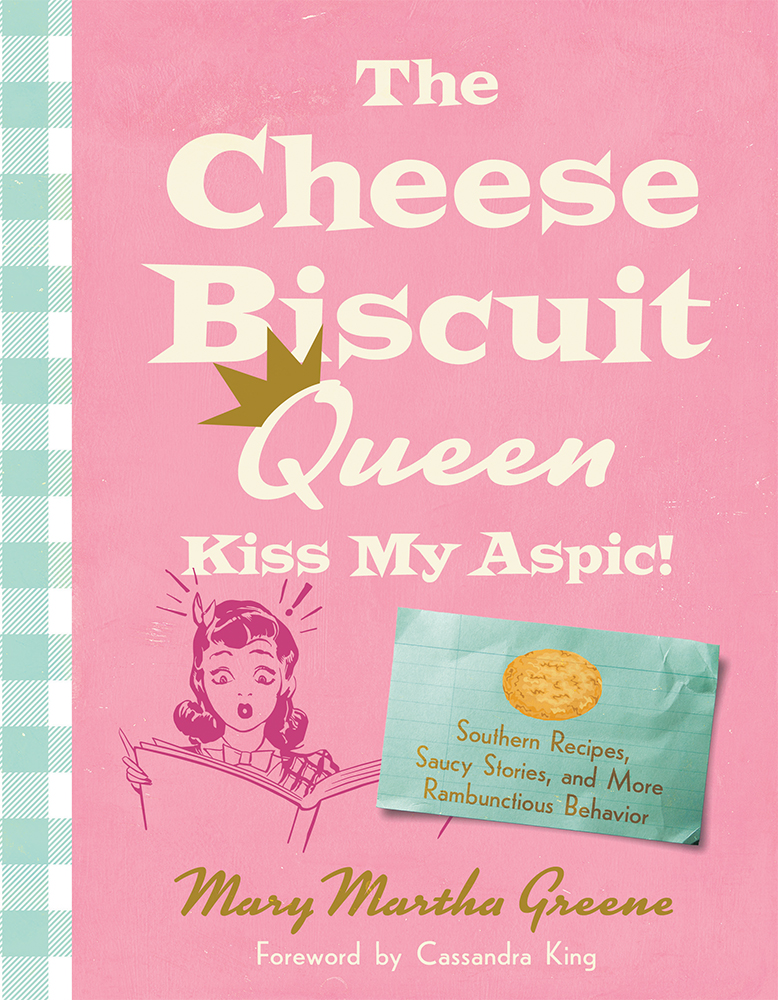 categories: Memoir & Biography, paperback, ebook, New & Noteworthy, Books, Travelogue & Essays, Cookbooks & Foodways,
Published:
Size:
Pages:
categories: Memoir & Biography, paperback, ebook, New & Noteworthy, Books, Travelogue & Essays, Cookbooks & Foodways,
Published:
Size:
Pages: 280
Illustrations:
Hardcover ISBN:
Paperback ISBN:
custom_title:
custom_subtitle:Southern Recipes, Saucy Stories, and More Rambunctious Behavior
custom_byline1: Mary Martha Greene
custom_byline2: foreword by Cassandra King
custom_bind:
custom_price: $
custom_addtocart:
custom_author_blurb:Mary Martha Greene is a South Carolina native and government relations consultant who perfected her entertaining skills for making friends and engaging clients during her forty-year career. The author of
The Cheese Biscuit Queen Tells All: Southern Recipes, Sweet Remembrances, and a Little Rambunctious Behavior, she divides her time between Beaufort and Columbia, SC.
custom_reviews:"
Kiss my Aspic! is a delightful read as much as a valuable resource for the home cook, filled with practical advice as well as inspirational quotes."—
Savannah Morning News"
The Cheese Biscuit Queen Kiss My Aspic! is a Whitman's Sampler of recipes, and stories about family, friends and acquaintances in the legislative world, southern etiquette or lack thereof, and a host of others. You will find as many favorite stories as you will recipes!"—
The Southern Literary Review"Chef's kiss! Storytelling and meals are a celebratory tradition in the South, and
The Cheese Biscuit Queen, Kiss My Aspic! is a most delightful tribute to Southern comfort food and culture. There's something to savor on every page!"—Kim Michele Richardson,
New York Times bestselling author
"
Kiss My Aspic! is as warm and welcoming as a surprise basket of treats and a front porch visit with a neighbor. An irresistible mix of cooking, stories, and Southern hospitality, Greene's latest collection is pure joy."—Lisa Wingate, #1
New York Times bestselling author of
Before We Were Yours"Reading
Kiss My Aspic! was like sitting at a table with Mary as we laugh over a meal and a glass of wine. I know this because I've done it. Thank you, Mary, for reminding us about the ways food brings together family, friends, and community."—Natalie Daise, artist, storyteller, and author of
Okra Stew: A Gullah Geechee Family Celebration"You know that feeling you have after catching up with a dear old friend, ticking off boxes full of gossip about this and that, and frequently finding your sides in stitches and your eyes gently stinging with tears of laughter? That is exactly how I feel after reading
The Cheese Biscuit Queen, Kiss My Aspic!"—KC Hysmith, PhD, historical editor,
When Southern Women Cook
custom_awards:
content: The Cheese Biscuit Queen returns with signature sass, spirited stories, and 80 new recipesQueen Mary Martha Greene's ear for stories, heart for telling them, and taste for all the ingredients that whip up a good time whisk together in
The Cheese Biscuit Queen, Kiss My Aspic! Southern Recipes, Saucy Stories, and More Rambunctious Behavior— the memoir, cookbook, and hilarious sequel to her best-selling book
The Cheese Biscuit Queen Tells All. In the new book, Queen Mary Martha invites you into her world of Southern hospitality, blending recipes and tales with just enough spice to make you flutter your hand fan.
Real-life characters sparkle with humor and Southern charm in this rollicking romp through new recipes and stories, including the "Whiskeypalian" sneaking alcohol to his grandmother at her retirement community, and a few favorites like the Queen's champagne mustard recipe origin story. To each pint of levity, she adds an ounce of gravity when she shares memories like her grandmother reminding her that friends are the family you choose.
Organized by course and featuring 80 new recipes,
The Cheese Biscuit Queen, Kiss My Aspic! includes delicious favorites like Shrimp Remoulade Deviled Eggs, Pride of the Pee Dee Chicken Bog, Chocolate Pound Cake with Pecan Fudge Icing, and Chatham Artillery Punch, plus Miss Willa's Cheese Tomato Aspic—that uniquely Southern staple of controversial appeal. Queen Mary Martha sets a place at her table for Southern hospitality newbies, experienced entertainers, and everyone who enjoys food made with love and seasoned with heartfelt stories.
Charmingly illustrated with vintage photographs and with a foreword by Cassandra King, author of
Tell Me a Story: My Life with Pat Conroy,
The Cheese Biscuit Queen, Kiss My Aspic! celebrates food, family, friends, and Southern culture.
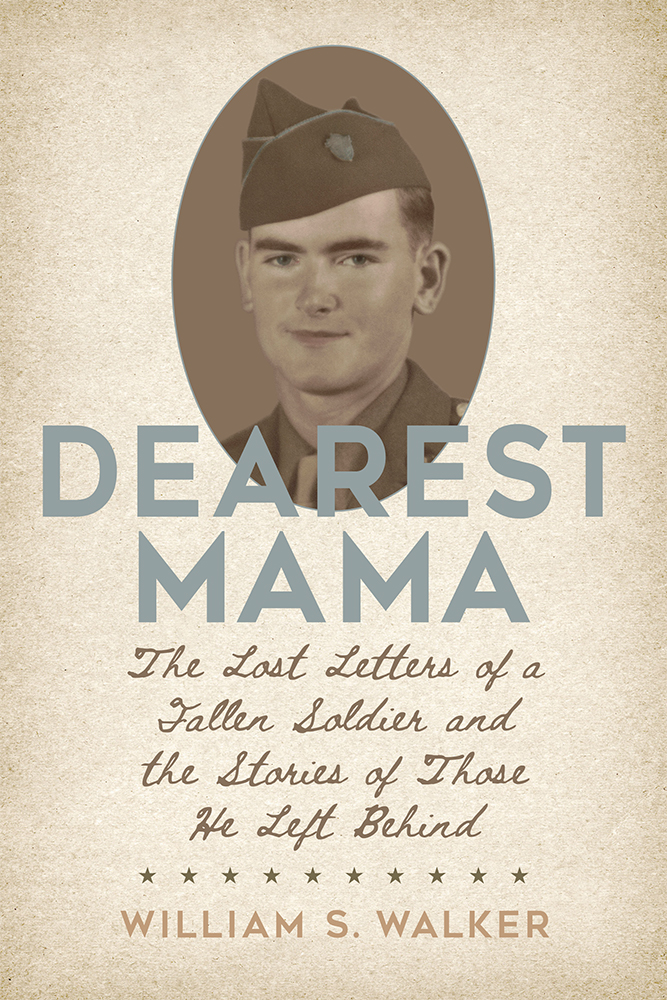 categories: Military History, Memoir & Biography, paperback, ebook, Books,
Published:
Size:
Pages:
categories: Military History, Memoir & Biography, paperback, ebook, Books,
Published:
Size:
Pages: 224
Illustrations:
Hardcover ISBN:
Paperback ISBN:
custom_title:
custom_subtitle:The Lost Letters of a Fallen Soldier and the Stories of Those He Left Behind
custom_byline1: William S. Walker
custom_byline2:
custom_bind:
custom_price: $
custom_addtocart:
custom_author_blurb:William Walker is a South Carolina–born writer and former soldier who worked as a reporter and editor for more than four decades.
custom_reviews:"A touching homage to a soldier who made the ultimate sacrifice for his country. A tender, loving account of a short but honorable life."—
Kirkus Reviews"
Dearest Mama presents a compelling collection of letters from WWII soldier, Private First-Class Fletcher Blanton, highlighting the profound impact of his absence on his family and friends."—Travis L. Martin, author of
War & Homecoming"There's a story behind every soldier who served during WWII. Thanks to a packet of letters he found in a cobweb-covered cabinet, William S. Walker tells the story of his uncle Bud, who never made it back home."—Tyler Bridges, chief political reporter for the
Times-Picayune/The Advocate in New Orleans, author of
The Flight
custom_awards:
content: A cache of letters leads to a journey of discovery that reveals the long and lasting consequences of war William S. Walker never knew his uncle, Fletcher "Bud" Blanton. Blanton had been killed fighting in Europe during World War II before Walker was born. Walker had heard stories about Bud, but for most of his life his uncle had existed only as a faded memory. That path changed when Walker opened a dusty cabinet forgotten in his garage attic and found a paper sack and a note in his father's handwriting that read, "Go through before you throw away." The bag was filled with family photos, correspondence, and a collection of letters and postcards that his uncle Bud had written to his family during his time on the frontline as a US Army infantryman in Europe. The first letter he pulled from the bag opened with the line, "Dearest Mama." Walker's
Dearest Mama is Bud Blanton's story. More than that it is a deeply personal family chronicle that resonates for all those left behind when servicemembers do not return home from combat.
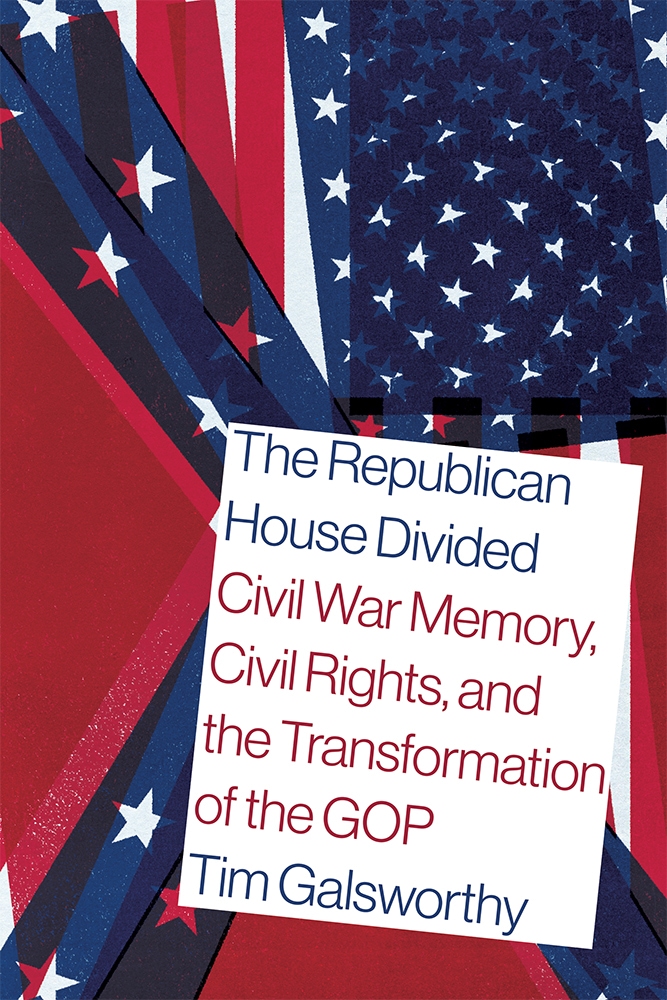 categories: Civil War, Civil Rights, Reconstruction Era, ebook, hardcover, Reconstruction Reconsidered, Forthcoming, Books,
Published:
Size:
Pages:
categories: Civil War, Civil Rights, Reconstruction Era, ebook, hardcover, Reconstruction Reconsidered, Forthcoming, Books,
Published:
Size:
Pages: 292
Illustrations:
Hardcover ISBN:
Paperback ISBN:
custom_title:
custom_subtitle:Civil War Memory, Civil Rights, and the Transformation of the GOP
custom_byline1: Tim Galsworthy
custom_byline2:
custom_bind:
custom_price: $
custom_addtocart:
custom_author_blurb:Tim Galsworthy is a lecturer in history and military history at Lincoln Bishop University in Lincoln, United Kingdom.
custom_reviews:
custom_awards:
content: How the Republican Party transformed from the Party of Lincoln to the Party of Lee The Republican House Divided is the first comprehensive study of the relationships between the Republican Party and Civil War memory in the twentieth century. Tim Galsworthy reveals how rival Republicans deployed Civil War memory to support, oppose, and ultimately shape the GOP's transformation, during the civil rights era, into a racially conservative party. Drawing on extensive archival research, Galsworthy underlines how references to the past were vitally important to Republican Party politicians as they negotiated their party's positions toward African American civil rights and attempted to appeal to erstwhile white Southern Democrats. Paying attention to a range of actors—including national party leaders, southern conservatives, prominent progressives, and defiant Black Republicans—he traces the actions of Republican politicians and operatives from across the party's ideological and geographical spectrums as they struggled to control and direct party messaging, strategy, and policy.
The Republican House Divided is a timely work, offering insight into how the "Party of Lincoln" started on the road to becoming the GOP of today.
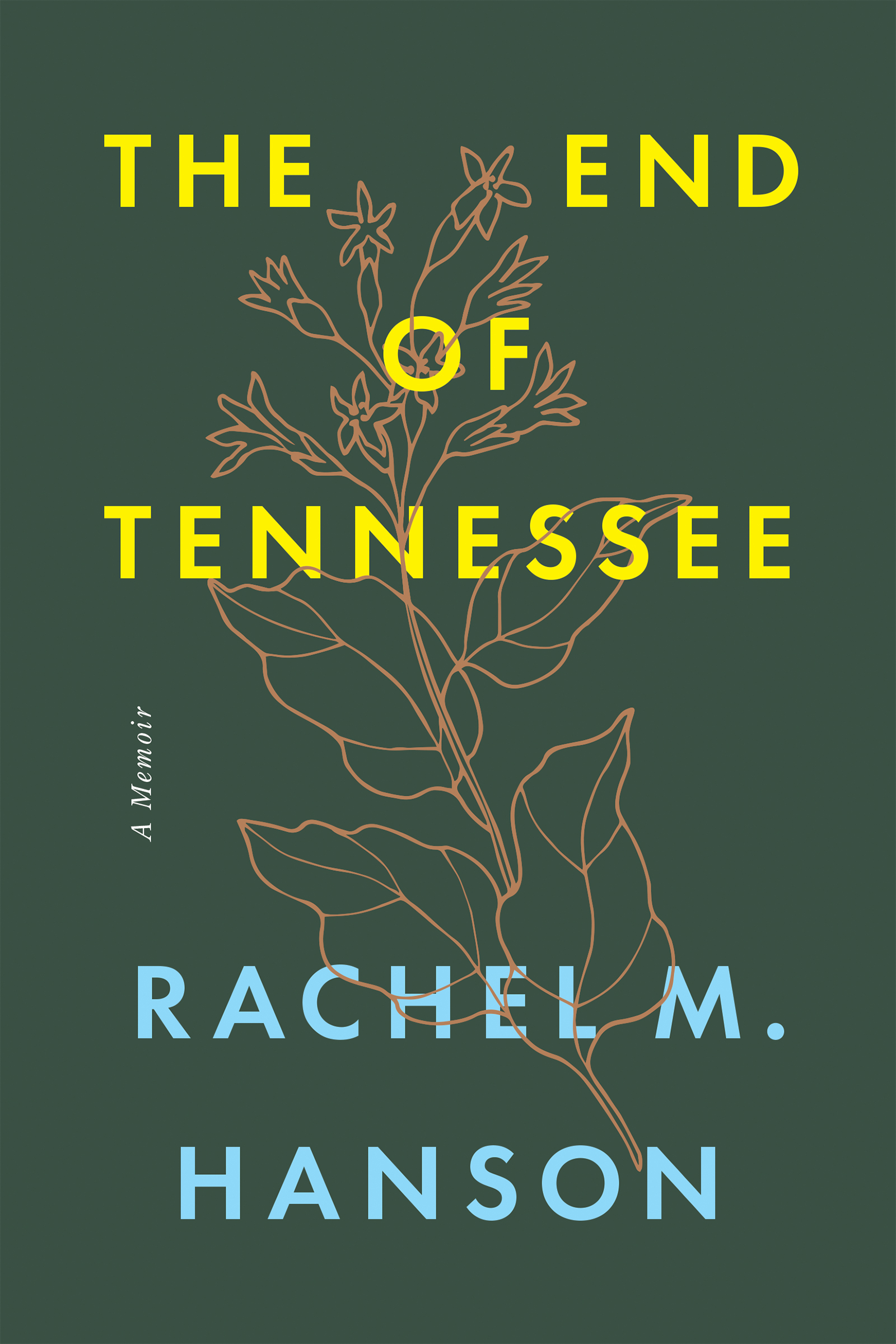 categories: Memoir & Biography, paperback, ebook, New & Noteworthy, Books, Women's & Gender Studies,
Published:
Size:
Pages:
categories: Memoir & Biography, paperback, ebook, New & Noteworthy, Books, Women's & Gender Studies,
Published:
Size:
Pages: 200
Illustrations:
Hardcover ISBN:
Paperback ISBN:
custom_title:
custom_subtitle:A Memoir
custom_byline1: Rachel M. Hanson
custom_byline2:
custom_bind:
custom_price: $
custom_addtocart:
custom_author_blurb:Rachel M. Hanson's writing has appeared in literary journals, including
Creative Nonfiction, The Iowa Review, and
Joyland Magazine. She is assistant professor of English at the University of North Carolina Asheville.
custom_reviews:"A book about disturbing experiences, related with cleareyed catharsis and memorable prose."—
Kirkus Reviews"A gut-wrenching story of resilience and survival, beautifully anchored through the ferocity of Hanson's attachments to those she loves. Gorgeous, terrifying, impossible to put down."—Tessa Fontaine, author of
The Electric Woman and
Red Grove: A Novel"
The End of Tennessee reminds me of the perfect pocketknife—sharp, clean, and always ready to save your life or cut you deep."—Leah Hampton, author of
F*ckface: And Other Stories"A shining reckoning of grief, love, abandon, and loss in Appalachia. Whistling like a crack and clear as crystal, I hear [Hanson] from every holler. The End of Tennessee will change you. Hanson is a real-deal gift."—Halle Hill, author of
Good Women"Hanson's memoir, at its core, is an account of her remarkable but often heartbreaking determination [. . .] an account of a woman seeking again and again to find or make metaphorical music amid the relentless difficulty of her circumstances."—Alex McWalters,
Mountain Xpress
custom_awards:
content: Southern Review of Books Best Southern Books of August 2024A haunting memoir of childhood trauma, building a life, and living with wounds that never heal "Not a year before I ran away from home at seventeen, I stepped out of the house at dusk, still able to see shrub oaks thinned out for winter, fame flower, too, and dun clay so wet the smell of it seemed settled in my skin." So begins Rachel M. Hanson's debut memoir about growing up impoverished, uneducated, and surrounded by violence. In lyrical, fragmented prose, she lays bare the impossible choice between self-preservation and her love for five younger siblings for whom she had become a second mother. As the years pass, Hanson struggles with guilt for leaving her siblings as she slowly realizes she could not save them.
The End of Tennessee is a testament to a sister's love, resilience, and determination, a book for anyone who has left one life to create another.
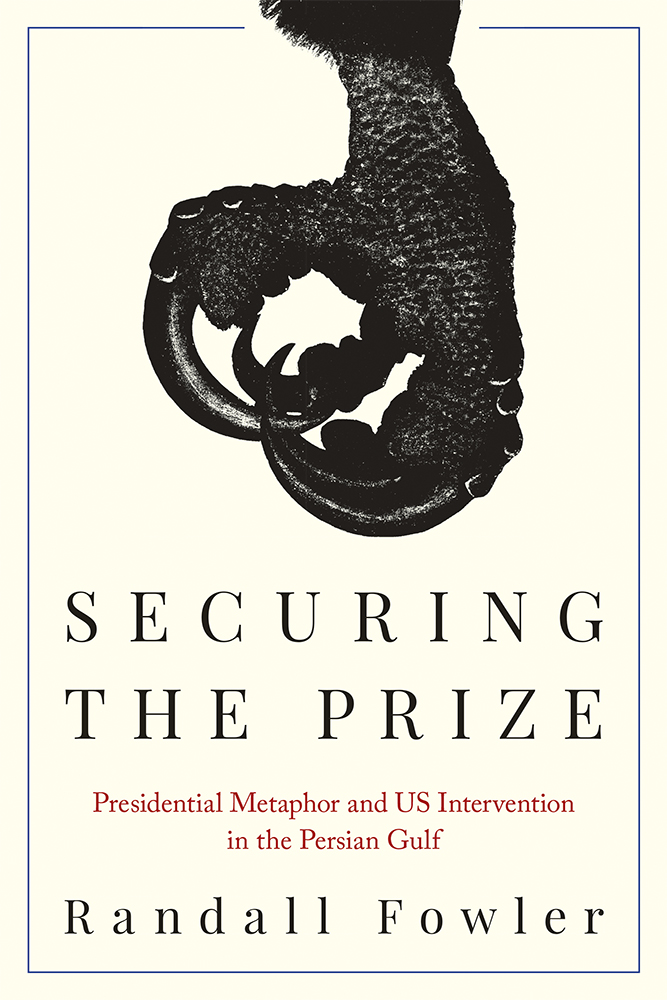 categories: Political Science, Rhetoric & Communication, paperback, ebook, hardcover, Books,
Published:
Size:
Pages:
categories: Political Science, Rhetoric & Communication, paperback, ebook, hardcover, Books,
Published:
Size:
Pages: 278
Illustrations:
Hardcover ISBN:
Paperback ISBN:
custom_title:
custom_subtitle:Presidential Metaphor and US Intervention in the Persian Gulf
custom_byline1: Randall Fowler
custom_byline2:
custom_bind:
custom_price: $
custom_addtocart:
custom_author_blurb:Randall Fowler is assistant professor of communication at Abilene Christian University. A former Fulbright scholar, he is author of
More Than a Doctrine: The Eisenhower Era in the Middle East and coauthor of
Something to Fear: FDR and the Foundations of American Insecurity, 1912–1945.
custom_reviews:"Fowler's cogently written book demonstrates the way evolving metaphors have influenced American foreign policy in the Persian Gulf over the last six decades."—Robert C. Rowland, University of Kansas, author of
The Rhetoric of Donald Trump"Fowler's examination of root metaphors in presidential war rhetoric makes an important contribution to our understanding of how we talk ourselves into war and how we might prevent war."—Paul J. Achter, University of Richmond, whose work has appeared in
Quarterly Journal of Speech,
Western Journal of Communication, and
Critical Studies in Media Communication"In
Securing the Prize, Randall Fowler illuminates how the presidential use of metaphor creates, contains, and constrains US foreign-policy discourse and decision making."—Allison M. Prasch, University of Wisconsin–Madison, author of
The World Is Our Stage and coeditor of
Foreign Policy Rhetorics in a Global Era
custom_awards:
content: How presidential metaphors have shaped US discourse on the Persian Gulf From the 1970s to the 1990s American presidents and their advisers introduced four metaphors into foreign-policy discourse that taught Americans to view the Persian Gulf as a vulnerable region and site of US responsibility on the world stage. In
Securing the Prize: Presidential Metaphor and US Intervention in the Persian Gulf, Randall Fowler argues that, for half a century, metaphor has been central to defining America's role in the Middle East. Metaphors served as shorthand for presidents to promote their policies, filtering through the judgments of officials, journalists, experts, and critics to mediate American perceptions of the Gulf War. Tracing the use of security metaphors from President Richard Nixon to President George W. Bush, Fowler revises mainstream understandings regarding the origins of the War on Terror and explains the disconnect between skeptical public attitudes toward US involvement in the Gulf War and the heavy American military footprint in the region.
 categories: Military History, Memoir & Biography, ebook, hardcover, New & Noteworthy, Books, Health, Medicine & Psychology,
Published:
Size:
Pages:
categories: Military History, Memoir & Biography, ebook, hardcover, New & Noteworthy, Books, Health, Medicine & Psychology,
Published:
Size:
Pages: 264
Illustrations:
Hardcover ISBN:
Paperback ISBN:
custom_title:
custom_subtitle:A Memoir
custom_byline1: Barbara Presnell
custom_byline2:
custom_bind:
custom_price: $
custom_addtocart:
custom_author_blurb:A lifelong Southerner,
Barbara Presnell is the author of two award-winning poetry books, essays, and theatrical performances. Presnell is a senior lecturer emeritus in writing at the University of North Carolina at Charlotte. A graduate of the University of North Carolina at Greensboro's MFA in Creative Writing program, she has received two NC Arts Council Fellowships and is a resident fellow at Willapa Bay AiR, the Hambidge Center, and the Wildacres Residency program. She lives in Lexington, NC, with her husband, Bill Keesler, and rescue pup, Colby.
custom_reviews:"With heartrending poignancy and powerful prose, Presnell's memoir ping-pongs between her traumatic youth in small-town North Carolina and her family's healing journey. As she and her siblings retrace their late father's steps as a young soldier in 1944–45 Europe, they open doors to reconciliation—on every level."—Holly George-Warren, author of
Janis: Her Life and Music"
Otherwise, I'm Fine is a story about connection—how we connect, disconnect, reconnect. Presnell is a gifted and gutsy writer. Her memoir is utterly compelling, full of longing and grace."—Judy Goldman, author of
Child: A Memoir"I have always admired Barbara Presnell's lyrical gifts, and in
Otherwise, I'm Fine she has created a memoir, crafting a sacramental relationship with her long-dead father who suffered, fought, and then returned home from World War II's European Theater. Presnell's writing is lucid and full of details. This is a beautiful book."—John Lane, author of
Gullies of My People"
Otherwise, I'm Fine follows the intimate journey Presnell undertakes as she recaptures her past, breaks years of silence, and in the process restores her family. It is a powerful testimony that love overcomes grief."—Susan Fox Rogers, author of
Learning the Birds: A Midlife Adventure"A tender family memoir about grief, memory, and reconnection."—
Foreword Reviews"Told through a series of vignettes, weaving and connecting the past and the present,
Otherwise I'm Fine is a poignant reminder of the unintentional pain that we can inflict on each other. Presnell also brings us hope that families can be reunited and the scars of war can bring reconciliation if we'll just listen to their stories."—
Chapter 16
custom_awards:
content: A daughter's story of unresolved grief and a family's hard-won healing When her husband Bill died in 1969, Tina Presnell gathered her three children. "We won't talk about this," she said. "It will be easier that way." Thus began, in the Presnell family, a decades-long period of silence and intense, isolated grieving for this ordinary man.
In 2012, several years after her mother's death, Barbara Presnell recovered her father's World War II belongings: a scrapbook, news clippings, documents, and letters. Recalling how much his war experiences had meant to him, Barbara, along with her estranged brother and sister, planned a journey to travel their father's route through Europe. From Omaha Beach in Normandy, France, to the western bank of the Elbe River in Magdeburg, Germany, the siblings would follow the movements of their father's division and rediscover his stories, share memories, and renew family bonds.
In
Otherwise, I'm Fine, Presnell tells the story of her grief and, across her tour of western Europe, the breakthroughs that released her from recurring depression, resolved her conflicted grief for her mother, and returned her beloved father to her and her siblings as a living memory.
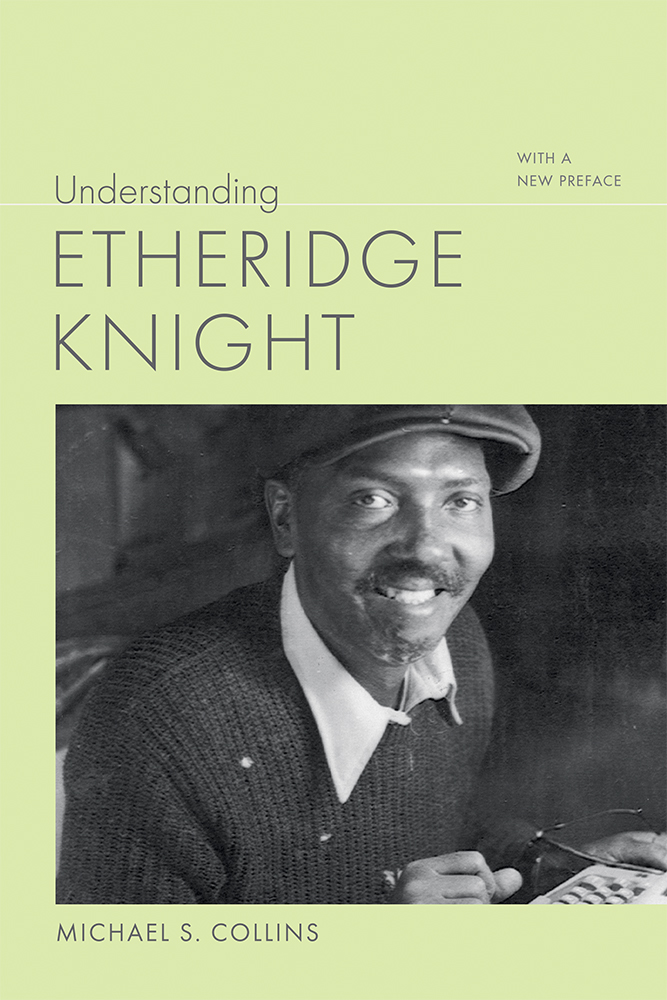 categories: Literary Studies, Understanding Contemporary American Literature, African American Studies, paperback, Books,
Published:
Size:
Pages:
categories: Literary Studies, Understanding Contemporary American Literature, African American Studies, paperback, Books,
Published:
Size:
Pages: 178
Illustrations:
Hardcover ISBN:
Paperback ISBN:
custom_title:
custom_subtitle:With a New Preface
custom_byline1: Michael S. Collins
custom_byline2:
custom_bind:
custom_price: $
custom_addtocart:
custom_author_blurb:Michael Collins is an associate professor of English at Texas A&M University. He has published essays and creative works in
PMLA, Modern Philology, Michigan Quarterly Review, Callaloo, Parnassus: Poetry in Review, The Best American Poetry 2003, and elsewhere.
custom_reviews:"A superb venture in literary criticism and intellectual biography. Michael Collins brings erudition, intelligence, shrewdness, and deftness of expression to this study of a significant if little-known American poet."—Arnold Rampersad, Stanford University
"An illuminating excavation of Knight's poetry and legacy."—
The Journal of African American History
custom_awards:
content: "Collins has written the book that Knight has long deserved."—American Literary ScholarshipUnderstanding Etheridge Knight introduces readers to a major—but understudied—American poet. Etheridge Knight (1931-1991) survived a shrapnel wound suffered during military service in Korea, as well as a drug addiction that led to an eight-year prison sentence, to publish five volumes of poetry and a small cache of powerful prose. His status in the front ranks of American poets and thinkers on poetry was acknowledged in 1984, when he won the Shelley Memorial Award, which had previously gone to E.E. Cummings, Gwendolyn Brooks, and W. S. Merwin as an acknowledgement of "genius and need."
In this first book-length study of Knight and his complete body of work, Michael Collins examines the poetry of a complex literary figure who, following imprisonment, transformed his life to establish himself as a charismatic voice in American poetry and an accomplished teacher at institutions such as the University of Hartford, Lincoln University, and his own Free Peoples Poetry Workshops. Beginning with a concise biography of Knight, Collins explores Knight's volumes of poetry including
Poems from Prison, Black Voices from Prison, Born of a Woman, and
The Essential Etheridge Knight. Updated to include a new preface,
Understanding Etheridge Knight brings attention to a crucial era in African American and American poetry, and to the literature of the incarcerated, while reflecting on the life and work of an original voice in American poetry.
 categories: Outdoors & Nature, paperback, ebook, Forthcoming, Books, Cookbooks & Foodways, Health, Medicine & Psychology,
Published:
Size:
Pages:
categories: Outdoors & Nature, paperback, ebook, Forthcoming, Books, Cookbooks & Foodways, Health, Medicine & Psychology,
Published:
Size:
Pages: 240
Illustrations:
Hardcover ISBN:
Paperback ISBN:
custom_title:
custom_subtitle:30 Healing Plants of the Coastal Carolinas
custom_byline1: April Punsalan
custom_byline2:
custom_bind:
custom_price: $
custom_addtocart:
custom_author_blurb:April Punsalan is a botanist, ethnobotanist, and herbalist. She is the owner of Wild Herb Academy, where she teaches subscription-based online courses in foraging (plant identification, gathering, and use) and medical botany, as well as in-person workshops. Through her Instagram account @wildherbacademy, she shares related content with 200k followers. Punsalan received an MS with an emphasis in botany from Western Carolina University and, before making WHA her full-time job, was a botanist with the US Forest Service and the US Fish and Wildlife Service for twelve years. She has published articles in
The Island Connection and
Aromaculture Magazine. She lives in Charleston, SC.
custom_reviews:
custom_awards:
content: Discover how to recognize and harvest these powerful herbs and craft remedies to promote good health
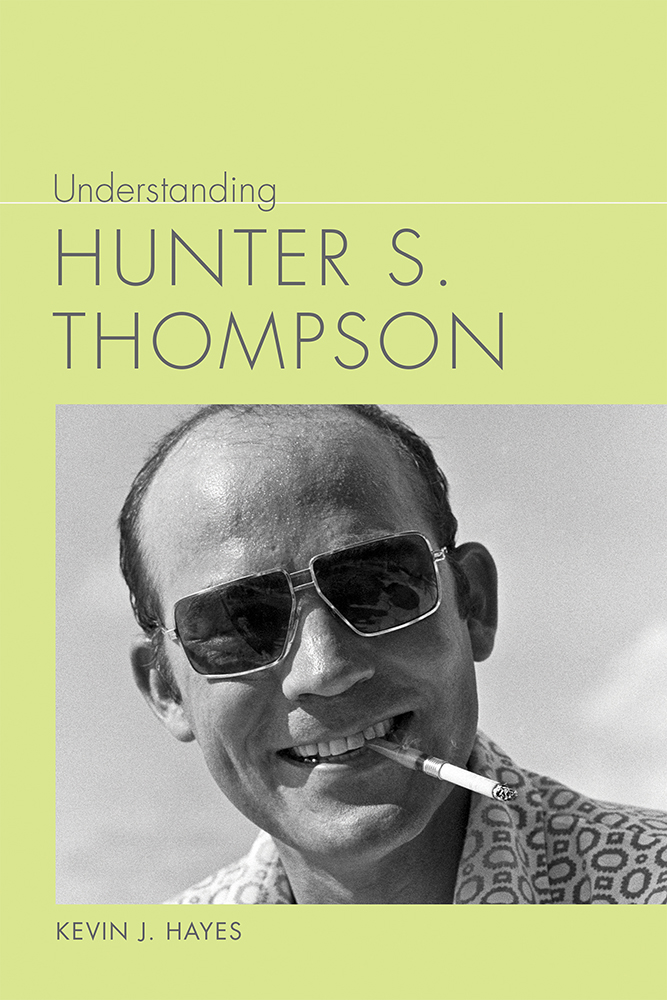 categories: Literary Studies, Understanding Contemporary American Literature, paperback, ebook, hardcover, Books,
Published:
Size:
Pages:
categories: Literary Studies, Understanding Contemporary American Literature, paperback, ebook, hardcover, Books,
Published:
Size:
Pages: 174
Illustrations:
Hardcover ISBN:
Paperback ISBN:
custom_title:
custom_subtitle:
custom_byline1: Kevin J. Hayes
custom_byline2:
custom_bind:
custom_price: $
custom_addtocart:
custom_author_blurb:Kevin J. Hayes is professor emeritus of English, University of Central Oklahoma. He is the author of numerous books, including
The Future of the Book: Images of Reading in the American Utopian Novel and
George Washington, A Life in Books, for which he was awarded the George Washington Prize.
custom_reviews:"A lively, erudite, highly readable study of Hunter S. Thompson's work, public persona, and cultural significance."—Lindsey Banco, University of Saskatchewan, author of
Travel and Drugs in Twentieth-Century Literature"Kevin J. Hayes'
Understanding Hunter S. Thompson is the most up-to-date and accurate assessment of Thompson's work, giving readers a better, fuller understanding of the late journalist and author's writing."—William McKeen, Boston University, author of
Outlaw Journalist and
Mile Marker Zero
custom_awards:
content: An insightful guide to the life and literary career of gonzo journalist Hunter S. Thompson Hunter S. Thompson (1937-2005) pushed the boundaries of storytelling. While the writer is most recognized for the genre-bending work
Fear and Loathing in Las Vegas (1972), in
Understanding Hunter S. Thompson, Kevin J. Hayes provides a broad and nuanced analysis of Thompson's multifaceted career and unique literary voice. Following a biographical introduction, Hayes examines the different roles Thompson played throughout his literary career, resulting in a view of his work unlike any previously published biographical or critical study. The ensuing chapters analyze Thompson's work in his capacities as a foreign correspondent, literary critic, New Journalist, gonzo journalist, campaign writer, anthologist, letter writer, and novelist. Hayes draws on previously unrecorded articles, correspondence, and interviews to inform his insightful analysis. Written in an engaging and propulsive style,
Understanding Hunter S. Thompson is essential reading for scholars and fans.
 categories: Literary Studies, ebook, hardcover, Forthcoming, Books, Women's & Gender Studies, South Carolina History & Culture,
Published:
Size:
Pages:
categories: Literary Studies, ebook, hardcover, Forthcoming, Books, Women's & Gender Studies, South Carolina History & Culture,
Published:
Size:
Pages: 288
Illustrations:
Hardcover ISBN:
Paperback ISBN:
custom_title:
custom_subtitle:Women Writers in Conversation and Community Across the Sea Islands, 1838–1902
custom_byline1: Mollie Barnes
custom_byline2:
custom_bind:
custom_price: $
custom_addtocart:
custom_author_blurb:Mollie Barnes is Associate Professor of English at the University of South Carolina Beaufort and Vice President of the Margaret Fuller Society. She has published more than a dozen articles and book chapters on nineteenth-century women writers.
custom_reviews:
custom_awards:
content: The lyrical and political power of nineteenth-century women reformers' life writingPaper Heroines studies the ways women represented their own and one another's lives in their personal diaries and their biographies of their contemporaries. Author Mollie Barnes urges us to read the life writing that emerged from among the relief-work networks of the South Carolina Lowcountry as deeply interconnected. By reading these women writers—Black and white, obscure and well-known—in conversation, Barnes presents entirely new portraits of these nineteenth-century freedom fighters. Like feminist and anti-racist leaders in our own moment, the women in
Paper Heroines were often flawed. White women reformers sometimes created tensions, silences, revisions, and erasures within their print-culture networks, obscuring the lives and contributions of Black women. Black women developed counternarratives and counternetworks as they sought to reclaim their own life histories. What emerges from Barnes's exploration of these textual conversations is a story of complicated relationships that reveal the dynamism of women's lives in a place and time that was equally tumultuous and consequential.
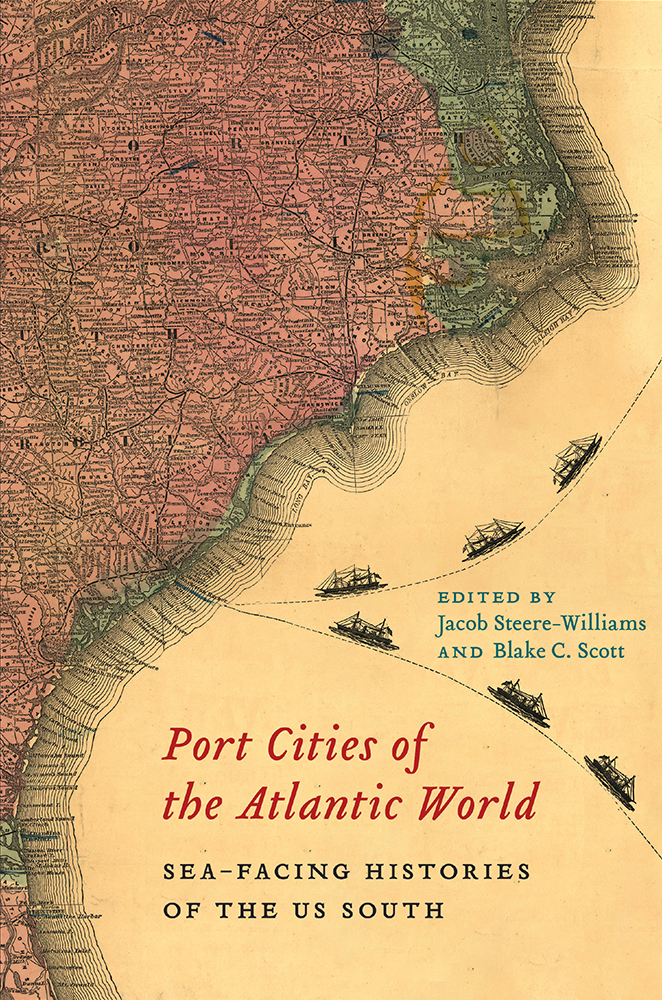 categories: Maritime History, U.S. History, Carolina Lowcountry and the Atlantic World, ebook, hardcover, Books,
Published:
Size:
Pages:
categories: Maritime History, U.S. History, Carolina Lowcountry and the Atlantic World, ebook, hardcover, Books,
Published:
Size:
Pages: 278
Illustrations:
Hardcover ISBN:
Paperback ISBN:
custom_title:
custom_subtitle:Sea-Facing Histories of the US South
custom_byline1: edited by Jacob Steere-Williams and Blake C. Scott
custom_byline2:
custom_bind:
custom_price: $
custom_addtocart:
custom_author_blurb:Jacob Steere-Williams holds a Ph.D. from the University of Minnesota and is associate professor of history at the College of Charleston.
Blake C. Scott holds a Ph.D. from the University of Texas-Austin and is associate professor of international studies at College of Charleston.
custom_reviews:"This sophisticated, creatively-designed volume advances our understanding of how port cities work as profound historical repositories of violence, resistance, culture, and memory. The book will hopefully be a model for many more 'sea-facing histories' to come."—Marcus Rediker, author of
The Slave Ship: A Human History"An innovative and engaging collection of essays,
Port Cities of the Atlantic World compels readers to rethink what they know about the port cities of the southeastern United States—especially the quintessentially southern city of Charleston—and their connections to the broader Atlantic world."—Ethan J. Kytle, coauthor of
Denmark Vesey's Garden: Slavery and Memory in the Cradle of the Confederacy"
Port Cities of the Atlantic World: Sea-Facing Histories of the US South would be suitable for inclusion in any academic or local library with a focus on historical or economic development in the Southeastern United States. The book could also be a valuable addition to any special library with a Southern history focus."—
Southeastern Librarian"[These essays] cover an impressive topical range and chronological span while remaining focused, coherent, and connected. [. . .] This collection [. . .] points to several useful paths of inquiry and demonstrates that ports serve as useful categories to write histories of Atlantic connection that remain grounded in specific places."—
Journal of Southern History
custom_awards:
content: Traces the maritime routes and the historical networks that link port cities around the Atlantic worldPort Cities of the Atlantic World brings together a collection of essays that examine the centuries-long transatlantic transportation of people, goods, and ideas with a focus on the impact of that trade on what would become the American South. Employing a wide temporal range and broad geographic scope, the scholars contributing to this volume call for a sea-facing history of the South, one that connects that terrestrial region to this expansive maritime history. By bringing the study up to the 20th century in the collection's final section, the editors Jacob Steere-Williams and Blake C. Scott make the case for the lasting influence of these port cities—and Atlantic world history—on the economy, society, and culture of the contemporary South.
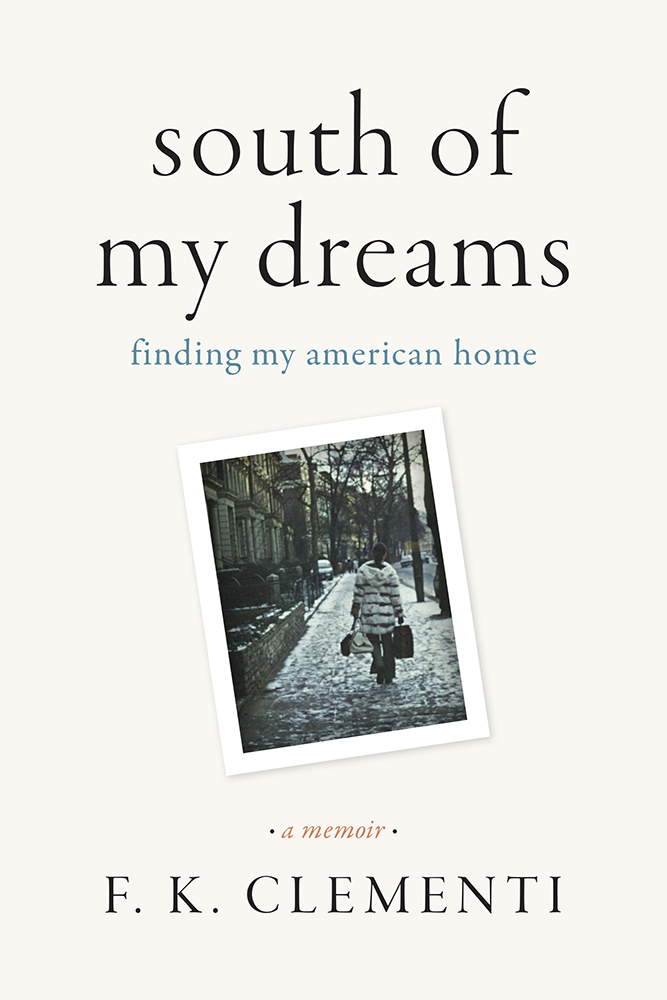 categories: Memoir & Biography, ebook, hardcover, New & Noteworthy, Books, Women's & Gender Studies, Jewish Studies,
Published:
Size:
Pages:
categories: Memoir & Biography, ebook, hardcover, New & Noteworthy, Books, Women's & Gender Studies, Jewish Studies,
Published:
Size:
Pages: 376
Illustrations:
Hardcover ISBN:
Paperback ISBN:
custom_title:
custom_subtitle:Finding My American Home, A Memoir
custom_byline1: F. K. Clementi
custom_byline2:
custom_bind:
custom_price: $
custom_addtocart:
custom_author_blurb:F. K. Clementi is a writer, public intellectual, and a professor of English and Jewish Studies at the University of South Carolina. She is the author of
Holocaust Mothers and Daughters: Family, History, and Trauma.
custom_reviews:"An exuberant, incisive memoir of dreaming of and inventing a New York life. Alive with telling detail, incandescent prose, and fresh insights. A richly pleasurable read. NYC lovers will find much to feast on."—
PW BookLife Review"A sparkling and quirky look at life as an immigrant academician."—
Kirkus Reviews"A memoir unlike any I've read before, captivating, even Proustian at times for the rich sensory details offered at every turn. Readers will easily fall into this melancholy, mellifluous account of a woman who sought, and found, the freedom to tell her own story on her own terms."—Tahneer Oksman, author of
How Come Boys Get to Keep Their Noses?"How does a Jewish woman from Rome, Italy make her way to the American South? The route is neither easy nor linear. . .. Yes, parts of Clementi's story are harrowing, but there are also surprising moments of dark humor that leaven her quest to find the place where she can be truly free, in a room of her own.
South of My Dreams is an original, empowering story of gumption and survival."—Julie Metz,
New York Times bestselling author of
Perfection and
Eva and Eve"
South of My Dreams is a quirky and unusual addition to the memoir literature from a spunky woman born in Rome, who dreams of living in New York, but winds up teaching at a South Carolina university via Poland, Israel, and Massachusetts. Funny and full of insights only an outsider to America can provide, Clementi traces her life and loves across cultures."—Helen Epstein, author of
The Long Half-Lives of Love and Trauma and
Where She Came From
custom_awards:
content: Woman plans, God laughs . . . Woman Persists. Introducing a new Jewish voice from the South that tells us with humor, panache, and raw frankness her irresistible story of what it means to become an American woman today.
South of My Dreams follows the adventures and misadventures of Fania, a quixotic heroine, who dreamed all her life of making it big in New York City. Growing up in 1970s Italy, Fania felt constrained by a stale environment, corrupt society, and national culture hostile to women's independence. In pursuit of her childhood fantasy, and heavily influenced by Hollywood films, she leaves everything behind to begin her new life in New York, where she thinks her American Dream awaits. Instead, her American nightmare begins. From miraculous breakthroughs to tragic setbacks, Fania's path is marked by an irreparable trauma while also being graced by intense love, faithful friendships, and inspiring mentors.
Through dramatic twists and turns—and to her great surprise—Fania learns the true meaning of the American expression to "go south."
Simultaneously merciless and humorous, F. K. Clementi's memoir is ultimately an inspiring account of a woman's disillusionment and personal rebirth. Entertaining, original, and poetic,
South of My Dreams will resonate with all who fight hard for what they want and refuse to put aside their childhood dreams.
 categories: Literary Studies, Understanding Contemporary American Literature, paperback, Books,
Published:
Size:
Pages:
categories: Literary Studies, Understanding Contemporary American Literature, paperback, Books,
Published:
Size:
Pages: 152
Illustrations:
Hardcover ISBN:
Paperback ISBN:
custom_title:
custom_subtitle:With a New Preface
custom_byline1: Jennifer Ann Ho
custom_byline2:
custom_bind:
custom_price: $
custom_addtocart:
custom_author_blurb:Jennifer Ann Ho, an associate professor of English and comparative literature at the University of North Carolina at Chapel Hill, teaches courses in Asian American literature, multiethnic American literature, and contemporary American literature. She is the author of
Consumption and Identity in Asian American Coming-of-Age Novels and
Racial Ambiguity in Asian American Culture and has published articles in
Modern Fiction Studies, Journal for Asian American Studies, and
Amerasia Journal, among others.
custom_reviews:"Jennifer Ann Ho in
Understanding Gish Jen praises her progression from conventional first-person narrators in her early novels to
The Love Wife's 'multiple homodiegetic first-person character narrators' who exploit the dynamism of voice and perspective. Ho is especially astute when noticing the little wrinkles of personal experience that tend to shape the author's career."—
American Literary Scholarship"Engagingly and even delightfully written,
Understanding Gish Jen provides a much-needed resource for students, teachers, fans, and scholars alike. Ho's survey provides crucial insights about the context, content, and form of Jen's oeuvre.
Understanding Gish Jen constitutes a major critical contribution to our understanding of this important American author; no reader of Gish Jen's work should be without this book."—Sue J. Kim, professor of English and co-director of the Center for Asian American Studies, University of Massachusetts Lowell
"Capacious in its analysis and well-researched in its approach, Jennifer Ho's treatment of Gish Jen's oeuvre — inclusive of fiction and creative non-fiction — is impressive, eloquent, and unmatched. A very welcome and smart analysis of a significant American author."—Cathy J. Schlund-Vials, University of Connecticut
"In
Understanding Gish Jen, Jennifer Ann Ho offers a walk through the works of one of our most important American writers. Jen is, as Ho describes her, 'a writer with an exceptional eye and ear for the comically absurd parts of contemporary life,' an American writer with her finger on the pulse of what divides us and what brings us together. Ho leaves us with the desire to read and re-read the works of this great contemporary writer, to delight in her humor, to ruminate on her wisdom."—Jeffrey F. L. Partridge, author of
Beyond Literary Chinatown, winner of an American Book Award from the Before Columbus Foundation
custom_awards:
content: Traces the evolution of Jen's career, her themes, and the development of her narrative voice.Jennifer Ann Ho introduces readers to a "typical American" writer, Gish Jen, who is the author of four novels:
Typical American, Mona in the Promised Land, The Love Wife, and
World and Town; a collection of short stories titled
Who's Irish?; and a collection of lectures titled
Tiger Writing: Art, Culture, and the Interdependent Self. Jen writes with an engaging, sardonic, and imaginative voice illuminating themes common to the American experience: immigration, assimilation, individualism, the freedom to choose one's path in life, and the complicated relationships that we have with our families and our communities. A second-generation Chinese American, Jen is widely recognized as an important American literary voice, at once accessible, philosophical, and thought-provoking. In addition to her novels, she has published widely in periodicals such as the
New Yorker, Atlantic Monthly, and
Yale Review.Ho traces the evolution of Jen's career, her themes, and the development of her narrative voice. In the process, she shows why Jen's observations about life in the United States - though revealed through the perspectives of her Asian American and Asian immigrant characters - resonate with a variety of audiences who find themselves reflected in Jen's accounts of love, grief, desire, disappointment, and the general domestic experiences that shape all our lives.
Following a brief biographical sketch, Ho examines each of Jen's major works, showing how she traces the transformation of immigrant dreams into mundane life, explores the limits of self-identification, and characterizes problems of cross-national communication alongside the universal problems of aging and generational conflict. Looking beyond Jen's fiction work, a final chapter examines her essays and her concerns and stature as a public intellectual, and detailed primary and secondary bibliographies provide a valuable point of departure for both teaching and future scholarship.
 categories: Rhetoric & Communication, Cultural Studies & Sociology, paperback, ebook, hardcover, Movement Rhetoric Rhetoric's Movements, New & Noteworthy, Books,
Published:
Size:
Pages:
categories: Rhetoric & Communication, Cultural Studies & Sociology, paperback, ebook, hardcover, Movement Rhetoric Rhetoric's Movements, New & Noteworthy, Books,
Published:
Size:
Pages: 174
Illustrations:
Hardcover ISBN:
Paperback ISBN:
custom_title:
custom_subtitle:Risking Public Action, Creating Social Change
custom_byline1: Lisa Ellen Silvestri
custom_byline2:
custom_bind:
custom_price: $
custom_addtocart:
custom_author_blurb:Lisa Ellen Silvestri is the author of
Friended at the Front: Social Media in the American Warzone and coeditor of
The Western Journal of Communication. She has spoken at the SXSW Festival and the 92nd Street Y. She is associate teaching professor at Pennsylvania State University.
custom_reviews:"Lisa Ellen Silvestri's
Peace by Peace is uplifting from start to finish as it reveals the potential of practical wisdom for concocting a brighter future."—Robert L. Ivie, author of
Dissent from War"It will be a great thing if this delightful book comes into your life—like having your wisest aunt over for tea.
Peace by Peace has ideas we all need to live a moral life in crisis times."—Mindy Thompson Fullilove, MD, author of
Root Shock: How Tearing Up City Neighborhoods Hurts America and What We Can Do About It
custom_awards:
content: Eight stories about extraordinary action carried out by ordinary people When you want to effect positive change against structural and systemic problems, where do you begin? In
Peace by Peace Lisa Silvestri uses interview-based storytelling to explore the catalytic moments that led ordinary people to address social, political, and economic issues in their communities ranging from the West Bank to West Baltimore. The source of their audacity is practical wisdom, an Ancient Greek virtue that Silvestri revives for twenty-first century application.
In the face of challenges like environmental exploitation, global conflict, and ongoing fights for social justice,
Peace by Peace offers deeply informed insight into how we can move past debilitating cynicism to create actionable change.
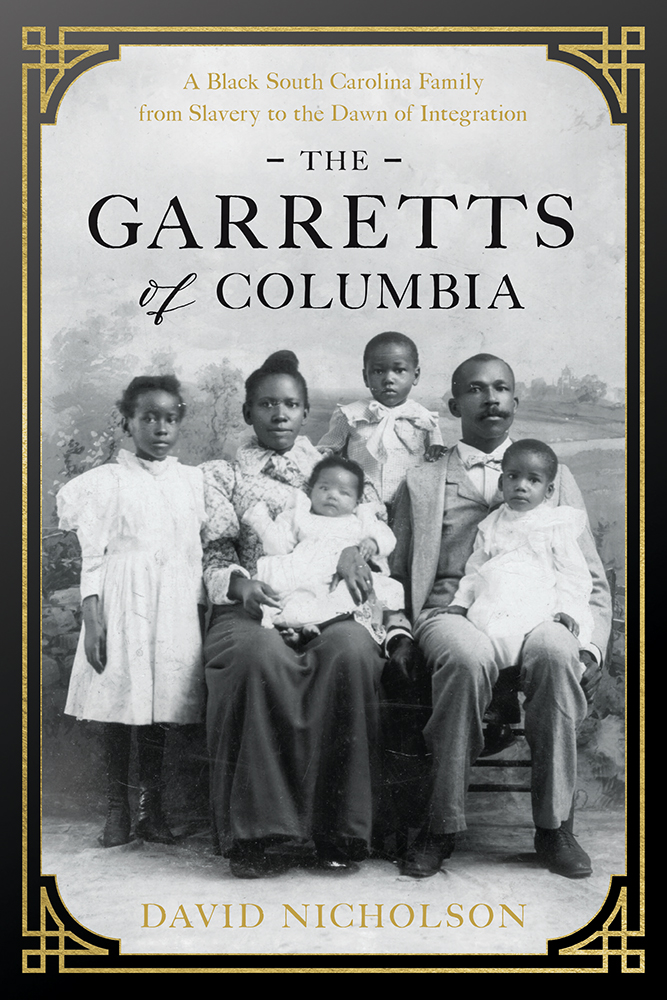 categories: Memoir & Biography, African American Studies, ebook, hardcover, New & Noteworthy, Books, South Carolina History & Culture,
Published:
Size:
Pages:
categories: Memoir & Biography, African American Studies, ebook, hardcover, New & Noteworthy, Books, South Carolina History & Culture,
Published:
Size:
Pages: 328
Illustrations:
Hardcover ISBN:
Paperback ISBN:
custom_title:
custom_subtitle:A Black South Carolina Family from Slavery to the Dawn of Integration
custom_byline1: David Nicholson
custom_byline2:
custom_bind:
custom_price: $
custom_addtocart:
custom_author_blurb:David Nicholson is a former editor and book reviewer for the
Washington Post Book World and author of
Flying Home: Seven Stories of the Secret City. He attended Haverford College before graduating from the University of the District of Columbia. Nicholson has worked as a reporter in San Francisco; Milwaukee; and Dayton, Ohio. He lives in Vienna, Virginia, with his wife and son.
custom_reviews:"A fascinating excursion into a past that, though relatively recent, has long been hidden from view."—
Kirkus Reviews (starred review)"[The Garretts of Columbia] Captures a family with both the rich detail of a biographer and the artistry of a novelist. A remarkable achievement."—
Washington Independent Review of Books"In this deeply satisfying book, David Nicholson tells a rigorously researched but also sensitively imagined story of one Black family's exacting and yet triumphant rendezvous with history—Southern, African American, American, and finally human history. Nicholson understands the nuances here and works with consistent mastery to draw them out for the benefit of the reader.
The Garretts of Columbia is a gift for our troubled times."—Arnold Rampersad, Professor Emeritus, Department of English, Stanford University, and author of
Ralph Ellison: A Biography"David Nicolson's richly sourced, interestingly populated veil of color . . . may be one of the great deep reads of our time by this confessed 'weary integrationist.'"—David Levering Lewis, Professor of History, Emeritus, New York University, and recipient of the Pulitzer Prize for Biography
"With a quiet dignity and resolve, David Nicholson evokes in
The Garretts of Columbia those of his own blood who went before him. He writes chiefly of his great-grandparents, whom he didn't know. What he knows from both his glands and his deep archival research is of their achievements—lawyer, newspaper editor and publisher, professor, teacher in segregated schools. What he knows is that old, sad, shameful story: the saga of one more multigenerational black family in America who tried so hard to love their own country, even as their own country refused to love them back. As I read, I kept thinking of the quiet dignity and resolve of those he has brought lovingly to life in this very fine book."—Paul Hendrickson, author of the National Book Critics Circle Award winner,
Sons of Mississippi: A Story of Race and Its Legacy"The best story is a personal story. David Nicholson tells a personal story about his family in
The Garretts of Columbia. Pride, shame, and curiosity create an open, revealing book. His skilled writing takes his people from slave trade to the Great Migration. Here's a personal story that is his story - History."—Juan Williams, author of
Eyes on the Prize: America's Civil Rights Years 1954-1965"
The Garretts of Columbia is a remarkably detailed, incisive, and eloquent history that reveals features of African American achievement, aspiration, and sensibility that are often overlooked. It will inform those already knowledgeable about African American history, and it will provide a wonderful introduction to those new to the field. This is a triumph of research, reflection, and imagination conveyed in beautiful, accessible, well-organized prose. Hopefully
The Garretts of Columbia will garner the wide audience that it deserves."—Randall Kennedy, Randall Kennedy, Michael R. Klein Professor of Law, Harvard University, and author of
Say It Loud: On Race, Law, History, and Culture"David Nicholson's deep literary dive into his family's history—against the mania of racism that haunts this nation—is poignant, powerful, and a true gift to readers."—Wil Haygood, author of
Showdown: Thurgood Marshall and the Supreme Court Nomination that Changed America"
The Garretts of Columbia, with photographs and excerpts of letters exchanged between family members, is a treasure trove of memories for Garrett descendants to cherish."—
The National Genealogical Society Quarterly
custom_awards:2024 Women's National Book Association Great Group Reads pick
2024
Washington Independent Review of Books Favorite Books pick
content: "A fascinating excursion into a past that, though relatively recent, has long been hidden from view."—Kirkus Reviews (starred review) • 2024 Women's National Book Association Great Group Reads pickA multigenerational story of hope and resilience, The Garretts of Columbia is an American history of Black struggle, sacrifice, and achievement.At the heart of David Nicholson's beautifully written and carefully researched book,
The Garretts of Columbia: A Black South Carolina Family from Slavery to the Dawn of Integration, are his great-grandparents, Casper George Garrett and his wife, Anna Maria. Papa, as Garrett was known to his family, was a professor at Allen University, a lawyer, and an editor of three newspapers. Dubbed Black South Carolina's "most respected disliked man," he was always ready to attack those he believed disloyal to his race. When his quixotic idealism and acerbic editorials resulted in his dismissal from Allen, his wife, who was called Mama, came into her own as the family bread winner. She was appointed supervisor of rural colored schools, trained teachers, and oversaw the construction of schoolhouses. At 51, this remarkable woman learned to drive, taking to the back roads outside Columbia to supervise classrooms, conduct literacy drives, and instruct rural farm women in the basics of home economics.
Though Papa and Mama came of age in the bleak Jim Crow years after Reconstruction, they believed in the possibility of America. Resolutely supporting their country during the First World War, they sent three of their sons to serve. One son wrote a musical with Langston Hughes during the Harlem Renaissance. Another son became a dentist. A daughter earned a doctorate in French. And the family persevered. But, for all that Papa and Mama did to make Columbia a nurturing place, their sons and daughters joined the Great Migration, scattering north in search of the freedom the South denied them.
The Garretts embraced the hope of America and experienced the melancholy of a family separated by the search for opportunity and belonging. On the basis of decades of research and thousands of family letters—which include Mama's tart-tongued observations of friends and neighbors—
The Garretts of Columbia is family history as American history, rich with pivotal events viewed through the lens of the Garretts's lives.
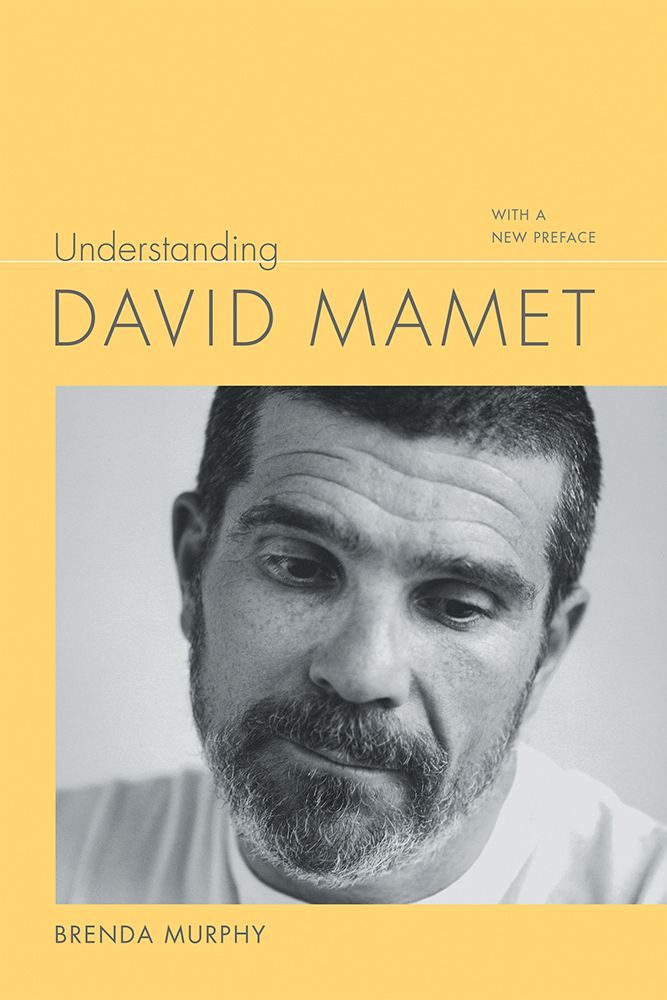 categories: Literary Studies, Understanding Contemporary American Literature, Music & Theater, paperback, Books,
Published:
Size:
Pages:
categories: Literary Studies, Understanding Contemporary American Literature, Music & Theater, paperback, Books,
Published:
Size:
Pages: 160
Illustrations:
Hardcover ISBN:
Paperback ISBN:
custom_title:
custom_subtitle:With a New Preface
custom_byline1: Brenda Murphy
custom_byline2:
custom_bind:
custom_price: $
custom_addtocart:
custom_author_blurb:Brenda Murphy is the Board of Trustees Distinguished Professor of English at the University of Connecticut. She received her Ph.D. from Brown University and has published fifteen books, including
The Provincetown Players and the Culture of Modernity, Tennessee Williams and Elia Kazan: A Collaboration in Theatre, and
Twentieth-Century American Drama: Critical Concepts in Literary and Cultural Studies.
custom_reviews:
custom_awards:
content: A new preface covers Mamet's most recent plays and nonfiction writingUnderstanding David Mamet analyzes the broad range of his plays and places them in the context of his career as a prolific writer of fiction and nonfiction prose, as well as drama. In addition to playwriting and directing for the theater, Mamet also writes, directs, and produces for film and television, and he writes essays, fiction, poetry, and even children's books. Author Brenda Murphy centers her discussion around Mamet's most significant plays—
Glengarry Glen Ross, Oleanna, American Buffalo, Speed-the-Plow, The Cryptogram, Sexual Perversity in Chicago, Edmond, The Woods, Lakeboat, Boston Marriage, and
The Duck Variations—as well as his three novels—
The Village, The Old Religion, and
Wilson. Murphy also notes how Mamet's one-act and less known plays provide important context for the major plays and help to give a fuller sense of the scope of his art. In her new preface, Murphy provides an overview of Mamet's plays, fiction, and essays in the 2010s and the continued move to the right in his political and cultural thinking.
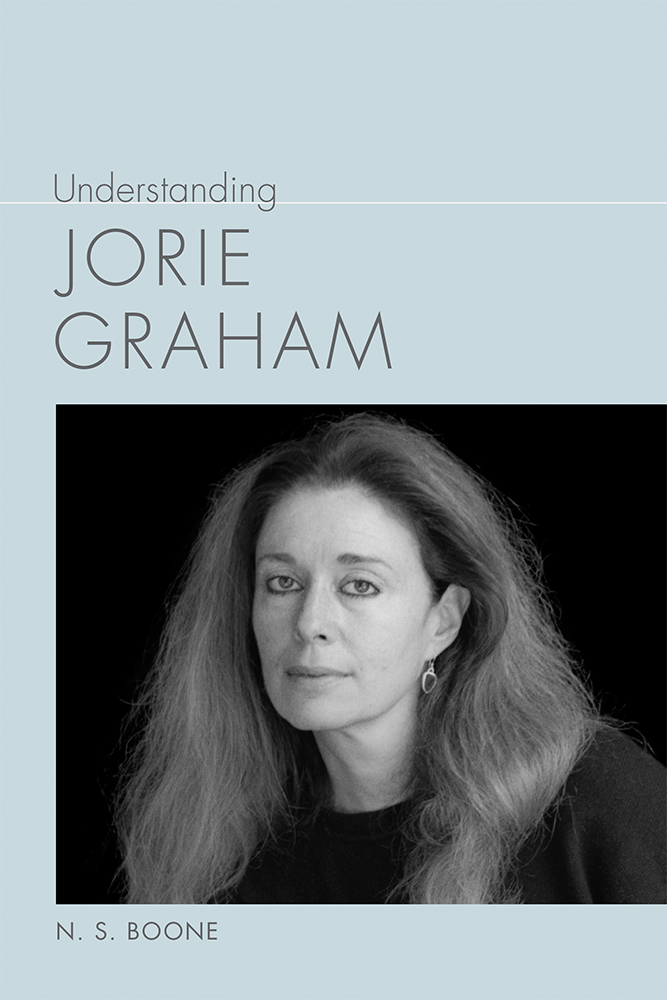 categories: Literary Studies, Understanding Contemporary American Literature, paperback, ebook, hardcover, Forthcoming, Books, Women's & Gender Studies,
Published:
Size:
Pages:
categories: Literary Studies, Understanding Contemporary American Literature, paperback, ebook, hardcover, Forthcoming, Books, Women's & Gender Studies,
Published:
Size:
Pages: 192
Illustrations:
Hardcover ISBN:
Paperback ISBN:
custom_title:
custom_subtitle:
custom_byline1: N. S. Boone
custom_byline2:
custom_bind:
custom_price: $
custom_addtocart:
custom_author_blurb:N. S. Boone is professor of English at Harding University. His writing has been published in journals, including
Renascence, T
he Journal of Black Mountain College Studies and
The Explicator.
custom_reviews:
custom_awards:
content: The first comprehensive study of Pulitzer Prize-winning poet Jorie Graham Since her first book appeared in 1980, Jorie Graham has challenged readers with her bold, innovative, and capacious poetry. In the collections that followed, she expanded the scope of the lyric form through her maximalist poetics, her provocative ethical imagination, and, in later years, her environmentalist vision. Graham was awarded the Pulitzer Prize for
The Dream of the Unified Field and has served as a chancellor of the Academy of American Poets. As a professor at Harvard University and the University of Iowa Writers' Workshop, Graham has mentored and inspired the next generation of poets.
In
Understanding Jorie Graham, N. S. Boone situates Graham among post-World War II and contemporary American poets, and he provides a look inside her life and career based on a series of exclusive personal interviews. Boone then traces the development of Graham's themes and style through her collections, providing detailed readings of the most significant poems in Graham's corpus. For scholars, students, and fans of Graham's poetry, the volume provides essential context and insight.
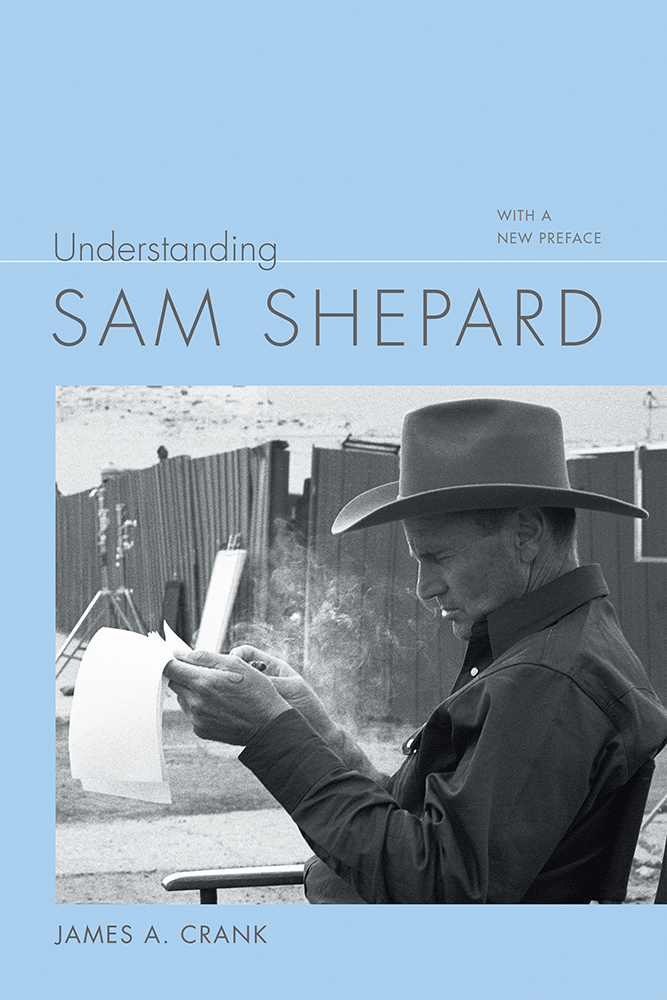 categories: Literary Studies, Understanding Contemporary American Literature, Music & Theater, paperback, Books,
Published:
Size:
Pages:
categories: Literary Studies, Understanding Contemporary American Literature, Music & Theater, paperback, Books,
Published:
Size:
Pages: 152
Illustrations:
Hardcover ISBN:
Paperback ISBN:
custom_title:
custom_subtitle:With a New Preface
custom_byline1: James A. Crank
custom_byline2:
custom_bind:
custom_price: $
custom_addtocart:
custom_author_blurb:James A. Crank is associate professor of American literature at the University of Alabama, a former National Humanities Center Summer Fellow, and co-host of the podcast "The Sound and the Furious." His other books include
Understanding Randall Kenan,
New Approaches to Gone with the Wind, and
Race and New Modernisms.
custom_reviews:
custom_awards:
content: An ideal introduction into the complex and compelling dramas of the acclaimed playwright Now available in a paperback edition and featuring a new preface,
Understanding Sam Shepard investigates the notoriously complex dramatic world of one of America's most prolific, thoughtful, and challenging contemporary playwrights. During his nearly fifty-year career as a writer, actor, director, and producer, Shepard (1943-2017) consistently focused his work on the ever-changing American cultural landscape. James A. Crank's thorough study offers scholars and students of the dramatist a means of understanding Shephard's frequent experimentation with language, setting, character, and theme. The new preface examines Shepard's legacy and his final work of fiction,
Spy of the First Person.
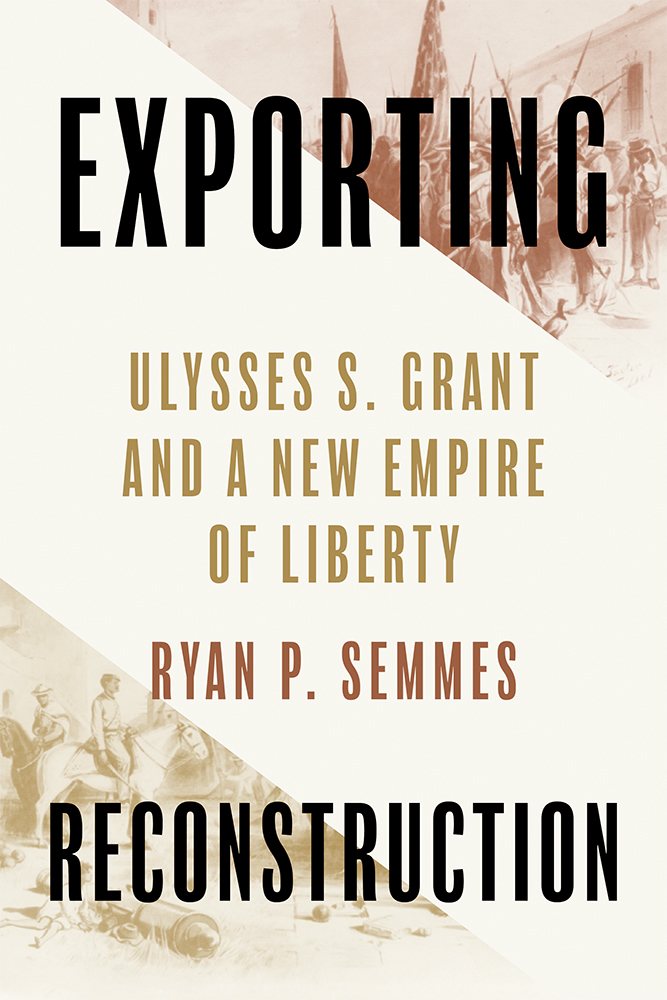 categories: U.S. History, Reconstruction Era, ebook, hardcover, Reconstruction Reconsidered, Books,
Published:
Size:
Pages:
categories: U.S. History, Reconstruction Era, ebook, hardcover, Reconstruction Reconsidered, Books,
Published:
Size:
Pages: 228
Illustrations:
Hardcover ISBN:
Paperback ISBN:
custom_title:
custom_subtitle:Ulysses S. Grant and a New Empire of Liberty
custom_byline1: Ryan P. Semmes
custom_byline2:
custom_bind:
custom_price: $
custom_addtocart:
custom_author_blurb:Ryan P. Semmes is professor and director of research at the Ulysses S. Grant Presidential Library, housed at Mississippi State University.
custom_reviews:"Ryan P. Semmes navigates exciting new departures into the international realm of Reconstruction, while furnishing a superb rehabilitation of Ulysses S. Grant's historical legacy."—Andrew F. Lang, author of
A Contest of Civilizations: Exposing the Crisis of American Exceptionalism in the Civil War Era, a 2022 Gilder Lehrman Lincoln Prize finalist
"No president has risen farther in rankings by presidential historians than Ulysses S. Grant. Ryan P. Semmes, demonstrating the fruits of his long involvement with the Grant Papers, offers a fresh evaluation of the foreign policy of this Reconstruction President."—Ronald C. White, author of
American Ulysses: A Life of Ulysses S. Grant"This ambitious volume illuminates the overarching coherence of Ulysses S. Grant's foreign and domestic policies, making it a compelling reading for courses on the Civil War era, American diplomacy, and Western history."—David Prior, author of
Between Freedom and Progress: The Lost World of Reconstruction Politics and editor of
Reconstruction and Empire: The Legacies of Abolition and Union Victory for an Imperial Age"Semmes skillfully uncovers new connections between Grant's Reconstruction policy toward African Americans and his ambition to construct a multiracial, Republican empire across and beyond North America. Highly recommended."—Stacey L. Smith, author of
Freedom's Frontier: California and the Struggle over Unfree Labor, Emancipation, and Reconstruction
custom_awards:
content: How Reconstruction-era political battles reflected global struggles over the era's core ideals Exporting Reconstruction examines Ulysses S. Grant's Reconstruction-era policy, both foreign and domestic, as an integrated whole. Grant's vision for America's international role in the aftermath of the Civil War was best articulated in his 1869 memorandum, considering whether the United States should annex the Dominican Republic. Grant envisioned a combined domestic and foreign policy of Reconstruction, one predicated on spreading the values of liberty, equality, and the rights of citizenship to not only the Dominican Republic but also other Caribbean nations as well as to Native Americans and Chinese immigrants living in the United States but seen as aliens within the nation.
Author Ryan P. Semmes interprets the Grant-era policy of Reconstruction as an all-encompassing agenda that imagined the United States as the arbiter of civil rights for the Western Hemisphere.
Exporting Reconstruction shows readers that, unlike presidents before and after his administration, Grant hoped to increase not only the United States's imperial reach but also extend freedom and liberty to people beyond the borders of North America.
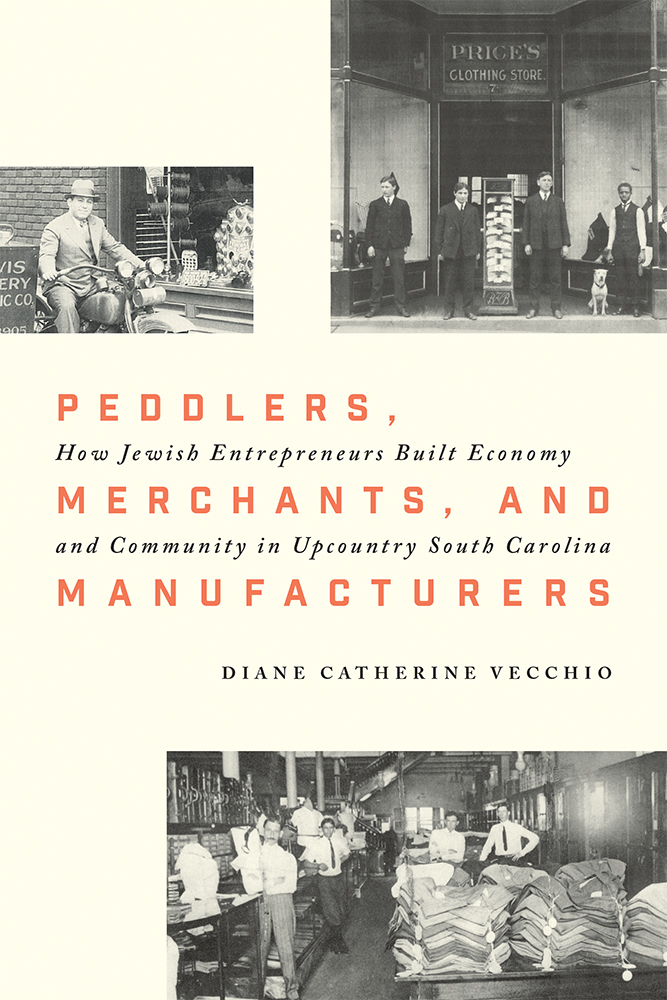 categories: Southern History, Business & Economics, ebook, hardcover, Books, South Carolina History & Culture, Jewish Studies,
Published:
Size:
Pages:
categories: Southern History, Business & Economics, ebook, hardcover, Books, South Carolina History & Culture, Jewish Studies,
Published:
Size:
Pages: 280
Illustrations:
Hardcover ISBN:
Paperback ISBN:
custom_title:
custom_subtitle:How Jewish Entrepreneurs Built Economy and Community in Upcountry South Carolina
custom_byline1: Diane Catherine Vecchio
custom_byline2:
custom_bind:
custom_price: $
custom_addtocart:
custom_author_blurb:Diane Catherine Vecchio is professor emerita of history, Furman University, Greenville, South Carolina. She is author of
Merchants, Midwives, and Laboring Women: Italian Migrants in Urban America. She is also a contributor to
Recovering the Piedmont Past (Vols. 1 and 2),
Doing Business in America, and
Southern Jewish History, as well as the author of many articles on Italian and Jewish immigrants.
custom_reviews:"With impeccable scholarship, Vecchio delivers a concise history of this understudied and important Jewish community. She explores the essential role of education and family networks and demonstrates the entrepreneurial success of immigrants and the various strategies 'strangers' in the South used to succeed in an unfamiliar environment. This is a brilliant account of a critical subject essential to understanding the immigrant experience and the American South."—Orville Vernon Burton, the Judge Matthew J. Perry Distinguished Professor of History, Clemson University, and Emeritus University Distinguished Teacher/Scholar, University of Illinois
"[T]his book provides great insight into the region's history in general while focusing on the individual and unique contributions of the Jewish business community in making the Upstate what it is today."—
South Carolina Libraries
custom_awards:2024 George C. Rogers Jr. Award Finalist
content: A new perspective on Jewish history in the SouthDiane Catherine Vecchio examines the diverse economic experiences of Jews who settled in Upcountry (now called Upstate) South Carolina. Like other parts of the so-called New South, the Upcountry was a center of textile manufacturing and new business opportunities that drew entrepreneurial energy to the region. Working with a rich set of oral histories, memoirs, and traditional historical documents, Vecchio provides an important corrective to the history of manufacturing in South Carolina. She explores Jewish community development and describes how Jewish business leaders also became civic leaders and affected social, political, and cultural life. The Jewish community's impact on all facets of life across the Upcountry is vital to understanding the growth of today's Spartanburg-Greenville corridor.
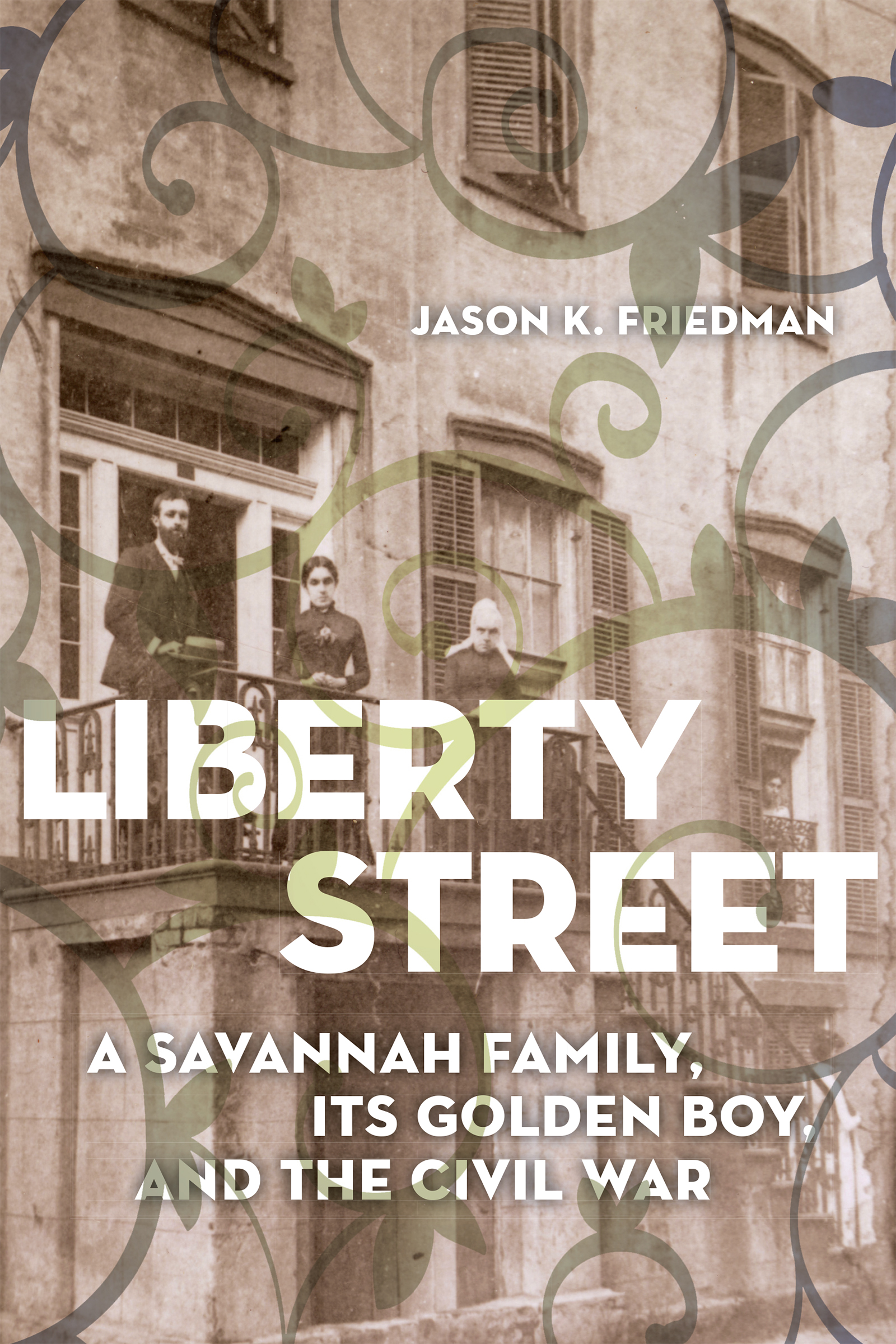 categories: Southern History, Civil War, paperback, ebook, New & Noteworthy, Books, Jewish Studies, Queer Studies, Audiobook,
Published:
Size:
Pages:
categories: Southern History, Civil War, paperback, ebook, New & Noteworthy, Books, Jewish Studies, Queer Studies, Audiobook,
Published:
Size:
Pages: 288
Illustrations:
Hardcover ISBN:
Paperback ISBN:
custom_title:
custom_subtitle:A Savannah Family, Its Golden Boy, and the Civil War
custom_byline1: Jason K. Friedman
custom_byline2:
custom_bind:
custom_price: $
custom_addtocart:
custom_author_blurb:Jason K. Friedman is the author of the award-winning story collection
Fire Year. He lives in San Francisco and Savannah.
custom_reviews:"A revealing prism through which to examine a dark period of American history."—
Publishers Weekly"A thrilling mystery, fearless reimagining, and fresh historical portrait that lives and breathes. I could not put it down. And neither will you."—Andrew Sean Greer, 2018 Pulitzer Prize winner for
Less"By blending memoir, history (through the eyes of place as character), and social commentary,
Liberty Street provides a strange and fully compelling bildungsroman."—Jonathan Rabb, author of several novels including
Among the Living and other novels
"Written with clarity, intelligence, precision, and a healthy dose of sultry Southern detail."—Aaron Hamburger, author of
Hotel Cuba"Ironically titled,
Liberty Street takes an incisive dive into the life and times of Jewish Confederate Gratz Cohen, a scion of two legendary families that straddled the Mason–Dixon line."—Dr. Dale Rosengarten, Founding curator of the Jewish Heritage Collection, College of Charleston
"The insightful product of years of research."—
Savannah Morning News"[A]n engrossing and thoughtful investigation of a slave owning Jewish family in the American South, with all of its attendant contradictions, self-justifications, and cognitive dissonances."—Lauren Gilbert,
Jewish Book council"With a seamless blend between first-person narrative style and historical examination,
Liberty Street proves that the past is both personal and intensely present."—Hannah Bone,
Southern Review of Books"Intricate and well wrought, like the iron balconies of old Savannah townhouses,
Liberty Street is a welcome contribution to the literature on the varieties of Jewish experience in the nineteenth-century American South as well as proof of the benefits of attending carefully to the shadows the past casts on the present."—Richard Kreitner,
Jewish Review of Books"
Liberty Street is a notable addition to gay literature of the South."—Donna Meredith,
Southern Literary Review"
Liberty Street's gifts are abundant. Friedman has developed a well-written history with original perspectives, often from the most unexpected of places."—
Rain Taxi
custom_awards:
content: A Good Morning America 2024 GMA Buzz PickPurchasing a historic Savannah home unlocks the sweeping story of a Southern Jewish familyAs Jason K. Friedman renovated his flat in a grand townhouse in his hometown of Savannah, Georgia, he discovered a portal to the past. The Cohens, part of a Sephardic community in London, arrived in South Carolina in the mid-1700s; became founding members of Charleston's Jewish congregation; and went on to build home, community, and success in Savannah.
In
Liberty Street: A Savannah Family, Its Golden Boy, and the Civil War Friedman takes the reader on a personal journey to understand the history of the Cohens. At the center of the story is a sensitive young man pulled between love and duty, a close-knit family straining under moral and political conflicts, and a city coming into its own. Friedman draws on letters, diaries, and his experiences traveling from Georgia to Virginia, uncovering hidden histories and exploring the ways place and collective memory haunt the present. At a moment when the hard light of truth shines on gauzy Lost-Cause myths,
Liberty Street is a timely work of historical sleuthing.
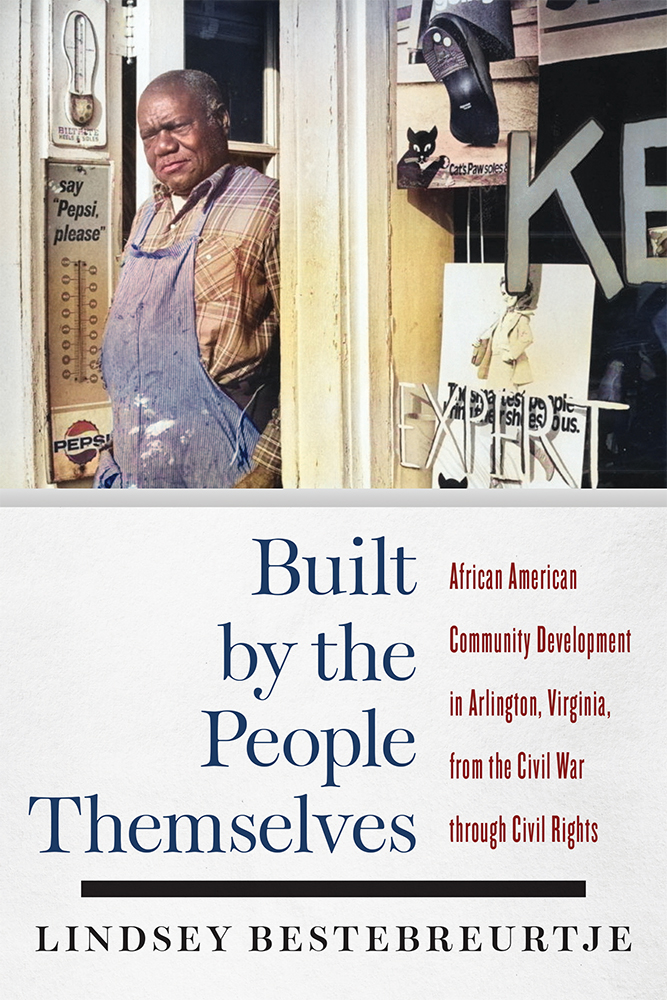 categories: Southern History, Civil Rights, African American Studies, paperback, ebook, hardcover, Books,
Published:
Size:
Pages:
categories: Southern History, Civil Rights, African American Studies, paperback, ebook, hardcover, Books,
Published:
Size:
Pages: 298
Illustrations:
Hardcover ISBN:
Paperback ISBN:
custom_title:
custom_subtitle:African American Community Development in Arlington, Virginia, from the Civil War through Civil Rights
custom_byline1: Lindsey Bestebreurtje
custom_byline2:
custom_bind:
custom_price: $
custom_addtocart:
custom_author_blurb:Lindsey Bestebreurtje, PhD, has served as a curatorial assistant with the Smithsonian's National Museum of African American History and Culture since 2015, where her work has earned the Excellence in Exhibition Award. Her publications have appeared in
The Virginia Magazine of History and Biography and
Reviews in American History.
custom_reviews:"A creative study of African Americans as 'city-builders,' despite ongoing social, economic, and political injustice in their everyday lives, families, and communities."—Joe William Trotter Jr., author of
Workers on Arrival: Black Labor in the Making of America."Through exhaustive research Bestebreurtje provides insight into the evolving tactics used by Black residents to blunt efforts to destroy their homes and their community institutions."—Spencer R. Crew, Clarence J. Robinson, Professor of History, George Mason University, Director Emeritus of the National Museum of American History
custom_awards:
content: The story of how racial segregation and suburbanization shaped lives, the built environment, and the law in Arlington In
Built by the People Themselves, Lindsey Bestebreurtje traces the history of the Black community in Arlington, Virginia, from the first days of emancipation through the civil rights era in the twentieth century. A core insight of her account is how common people developed strategies to survive and thrive despite systems of oppression in the Jim Crow South. Moving beyond the standard story of suburbanization that focuses on elite white community developers, Bestebreurtje analyzes African American-led community development and its effects on Arlington County.
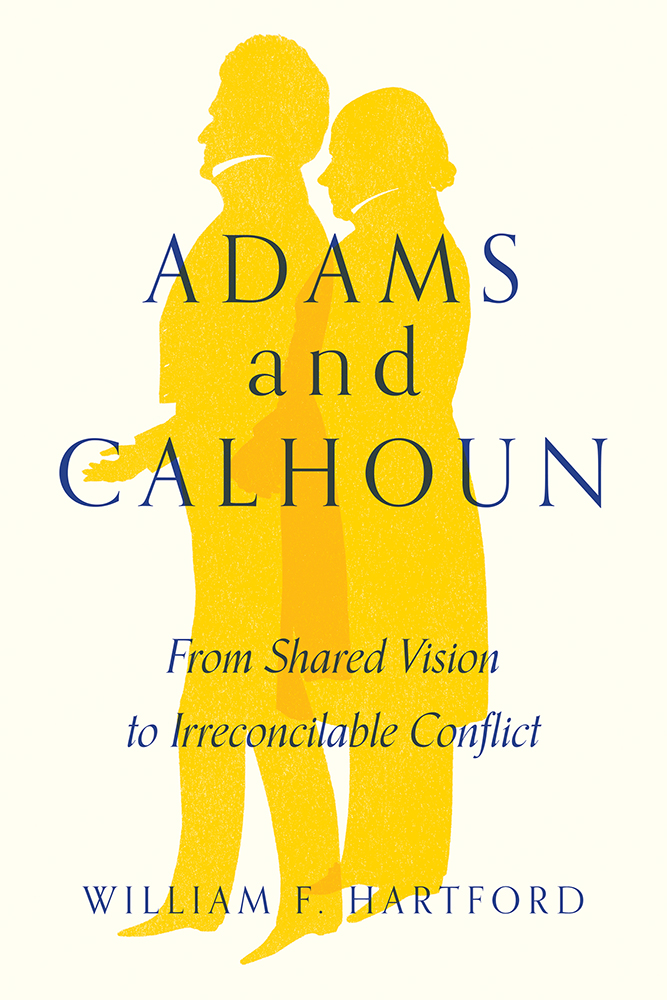 categories: Civil War, U.S. History, paperback, ebook, hardcover, Books,
Published:
Size:
Pages:
categories: Civil War, U.S. History, paperback, ebook, hardcover, Books,
Published:
Size:
Pages: 278
Illustrations:
Hardcover ISBN:
Paperback ISBN:
custom_title:
custom_subtitle:From Shared Vision to Irreconcilable Conflict
custom_byline1: William F. Hartford
custom_byline2:
custom_bind:
custom_price: $
custom_addtocart:
custom_author_blurb:William F. Hartford is an independent scholar whose earlier works include
Money, Morals, and Politics: Massachusetts in the Age of the Boston Associates and
Where Is Our Responsibility: Unions and Economic Change in the New England Textile Industry, 1870-1960.
custom_reviews:"
Adams and Calhoun tells an impressive story, one that has never been told before in this manner, with remarkable clarity, vigor, and fairness. William F. Hartford has produced a fast-paced, engaging narrative about two famous men that proves not only fair to both and engaging for readers but also one not sparing concern for the flaws both men manifested."—Lacy Ford, emeritus, department of history, University of South Carolina
"William F. Hartford's decision to structure his study of
Calhoun and Adams as a dual biography is superb. The two men were so similar in some ways, and so dissimilar in others, that they make a perfect pairing to show how the issue of slavery became the rock on which the entire country had nearly shattered by the end of their lives."—Robert Elder, associate professor of history, Baylor University
"A notable book – Based on thorough research in primary and secondary sources, William Hartford's insightful treatment of both Adams and Calhoun illustrates the powerful personal and political motives that led two extraordinarily able and ambitious American leaders from alliance to opposition, a course that exemplified the nation's. I heartily recommend Professor Hartford's achievement."—William J. Cooper, Boyd Professor Emeritus, LSU
custom_awards:
content: Examines the evolving lives of two men who were crucial political figures in the consequential decades prior to the Civil WarAlthough neither of them lived to see the Civil War, John Quincy Adams and John C. Calhoun did as much any two political figures of the era to shape the intersectional tensions that produced the conflict. William F. Hartford examines the lives of Adams and Calhoun as a prism through which to view the developing sectional conflict. While both men came of age as strong nationalists, their views, like those of the nation, diverged by the 1830s, largely over the issue of slavery. Hartford examines the two men's responses to issues of nationalism and empire, sectionalism and nullification, slavery and antislavery, party and politics, and also the expansion of slavery. He offers fresh insights into the sectional conflict that also accounts for the role of personal idiosyncrasy and interpersonal relationships in the coming of the Civil War.
 categories: Southern History, ebook, hardcover, Forthcoming, Books, Cookbooks & Foodways,
Published:
Size:
Pages:
categories: Southern History, ebook, hardcover, Forthcoming, Books, Cookbooks & Foodways,
Published:
Size:
Pages: 304
Illustrations:
Hardcover ISBN:
Paperback ISBN:
custom_title:
custom_subtitle:Distinctive Foods and Stories from Where Eating Local Began
custom_byline1: Kevin Mitchell and David S. Shields
custom_byline2: foreword by Mashama Bailey
custom_bind:
custom_price: $
custom_addtocart:
custom_author_blurb:Kevin Mitchell is the first African American chef instructor at the Culinary Institute of Charleston and holds degrees in culinary arts and southern studies from the Culinary Institute of America and University of Mississippi. He is the co-author, with David S. Shields, of
Taste the State: South Carolina's Signature Foods, Recipes, and Their Stories.David S. Shields is the author of numerous books including
Southern Provisions: The Creation and Revival of a Cuisine and, with Giselle Kennedy Lord, the James Beard and IACP award finalist
The Ark of Taste: Delicious and Distinctive Foods that Define the United States. He is a recipient of the Southern Foodways Alliance's Ruth Fertel Keeper of the Flame Award and chair of the Carolina Gold Rice Foundation.
custom_reviews:"This latest work takes readers down a delicious historical rabbit hole in a discussion of dishes and ingredients associated with Georgia."—
Atlanta Journal Constitution"For those who read a menu before eating, this book will entice you into a glorious Georgian feast."—Linton Hopkins, internationally acclaimed chef and owner, Hopkins and Company
"
Taste the State Georgia is a remarkable genealogy of the state's cuisine and her contributions to the flow of Southern history and American identity. So proud to see the impact of African Americans so clearly shown in this volume with such a fresh approach."—Michael W. Twitty, culinary historian, James Beard Award–winning author of
The Cooking Gene"A wonderfully compelling celebration of the foods borne from Georgia's fields, forests, and waterways, and how the state's pioneering marketing efforts helped define the very concept of regional American food."—Virginia Willis, chef, James Beard Award–winning cookbook author, and seventh-generation Georgian
"Peaches brought you here, and this book showcases some of the most delicious foodways that will keep you here."—Todd Richards, culinary director of Jackmont Hospitality, award-winning author of
Soul and Roots, Heart, Soul"A deeply researched anthology of ingredients that have a strong history here, and the stories are fascinating. . . . Just about every chapter hits home for me, and the journey is delicious."—Steven Satterfield, James Beard Award–winning chef, author, and co-owner of Miller Union and Madeira Park, Atlanta
"Required reading for those fascinated by the taste of place, particularly from Georgia, where the flavors crafted by Indigenous, European, and Black people merged over centuries with those of newly arrived Georgians and continue to do so today."—Marcie Cohen Ferris, professor emerita, UNC–-Chapel Hill, author of
The Edible South"A blueberry moon rises; shrimp tap-dance in butter—Georgia's fields and kitchens spin stories sweeter than tea on a summer porch."—Chefarmer Matthew Raiford, sixth-generation farmer, author of
Bress 'n' Nyam"This historian and culinarian duo can't be matched! I learned so much, and you will as well."—Duane Nutter, chef and owner of Southern National, Atlanta, and author of
Cutting Up in the Kitchen
custom_awards:
content: Ingredient by ingredient, dish by dish, take a tantalizing tour of Georgia's signature foods"
Taste the State Georgia and the regional foods within it can be a source of pride for people and communities. . . . This book will prepare you for your next Georgian culinary adventure and give you a bit of history on why southerners eat what they eat."
—Mashama Bailey, chef and owner of The Grey, Savannah
From apples to peaches to Vidalia onions, Georgia is home to some of the finest produce grown in the American South. From Brunswick stew to Savannah Red Rice, the state's signature dishes are steeped in history. In
Taste the State Georgia, chef Kevin Mitchell and culinary historian David S. Shields reveal the stories and history that have made this rich food culture what it is today.
Arguing that Georgia was one of the first states to enthusiastically claim regional cuisine as a marketing tool, Mitchell and Shields explore each of the state's regions, highlighting foods such as Fort Valley Pecans from Central Georgia and Sapelo Island Clams from the Sea Islands. Beyond such staples of the Georgian diet, the authors emphasize more recent culinary creativity, which has produced favorites like the pimento cheeseburger and Vidalia onion cornbread. Sharing stories of heirloom cultivars and innovative kitchens,
Taste the State Georgia is a testament to both the enduring memory and future possibilities of Georgian cuisine.
Taste the State Georgia includes sixty-five alphabetical entries, with numerous historical recipes, fourteen original recipes by Chef Mitchell, forty-eight color images, and a foreword by celebrated Savannah chef and author Mashama Bailey.
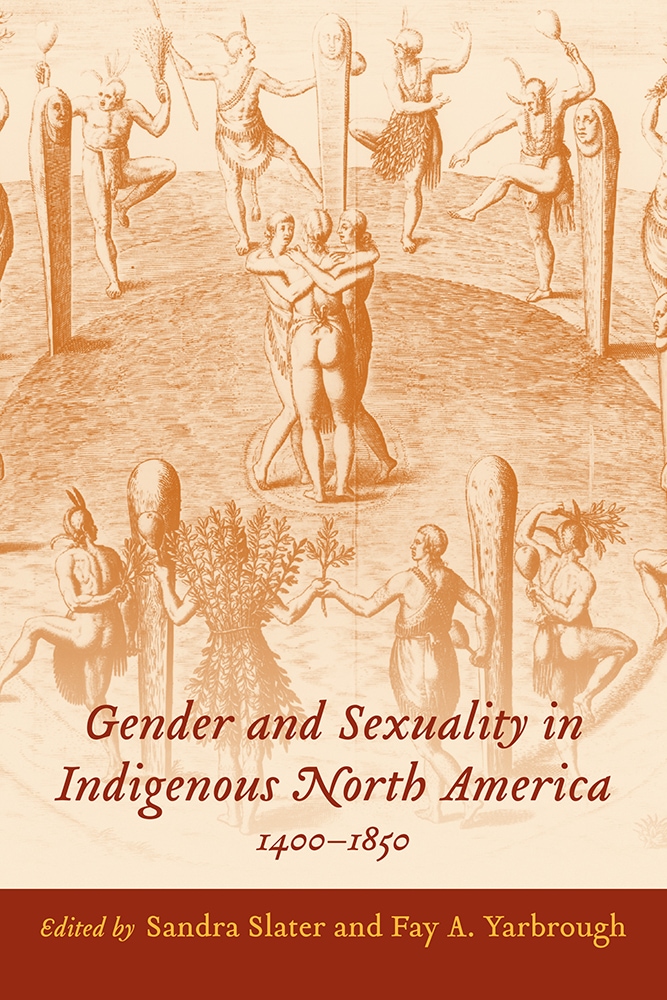 categories: Cultural Studies & Sociology, U.S. History, paperback, ebook, Books, Women's & Gender Studies, Native American Studies, Queer Studies,
Published:
Size:
Pages:
categories: Cultural Studies & Sociology, U.S. History, paperback, ebook, Books, Women's & Gender Studies, Native American Studies, Queer Studies,
Published:
Size:
Pages: 216
Illustrations:
Hardcover ISBN:
Paperback ISBN:
custom_title:
custom_subtitle:
custom_byline1: edited by Sandra Slater and Fay A. Yarbrough
custom_byline2:
custom_bind:
custom_price: $
custom_addtocart:
custom_author_blurb:Sandra Slater is an associate professor of history and director of the Carolina Lowcountry and Atlantic World Program at the College of Charleston.
Fay A. Yarbrough is professor of history at Rice University and the author of
Race and the Cherokee Nation: Sovereignty in the Nineteenth Century.
custom_reviews:
custom_awards:
content: Groundbreaking historical scholarship on the complex attitudes toward gender and sexual roles in Native American culture, with a new preface and supplemental bibliographyPrior to the arrival of Europeans in the New World, Native Americans across the continent had developed richly complex attitudes and forms of expression concerning gender and sexual roles. The role of the "berdache," a man living as a woman or a woman living as a man in native societies, has received recent scholarly attention but represents just one of many such occurrences of alternative gender identification in these cultures. Editors Sandra Slater and Fay A. Yarbrough have brought together scholars who explore the historical implications of these variations in the meanings of gender, sexuality, and marriage among indigenous communities in North America. Essays that span from the colonial period through the nineteenth century illustrate how these aspects of Native American life were altered through interactions with Europeans.
Organized chronologically,
Gender and Sexuality in Indigenous North America, 1400-1850 probes gender identification, labor roles, and political authority within Native American societies. The essays are linked by overarching examinations of how Europeans manipulated native ideas about gender for their own ends and how indigenous people responded to European attempts to impose gendered cultural practices at odds with established traditions. Many of the essays also address how indigenous people made meaning of gender and how these meanings developed over time within their own communities. Several contributors also consider sexual practice as a mode of cultural articulation, as well as a vehicle for the expression of gender roles.
Representing groundbreaking scholarship in the field of Native American studies, these insightful discussions of gender, sexuality, and identity advance our understanding of cultural traditions and clashes that continue to resonate in native communities today as well as in the larger societies those communities exist within.
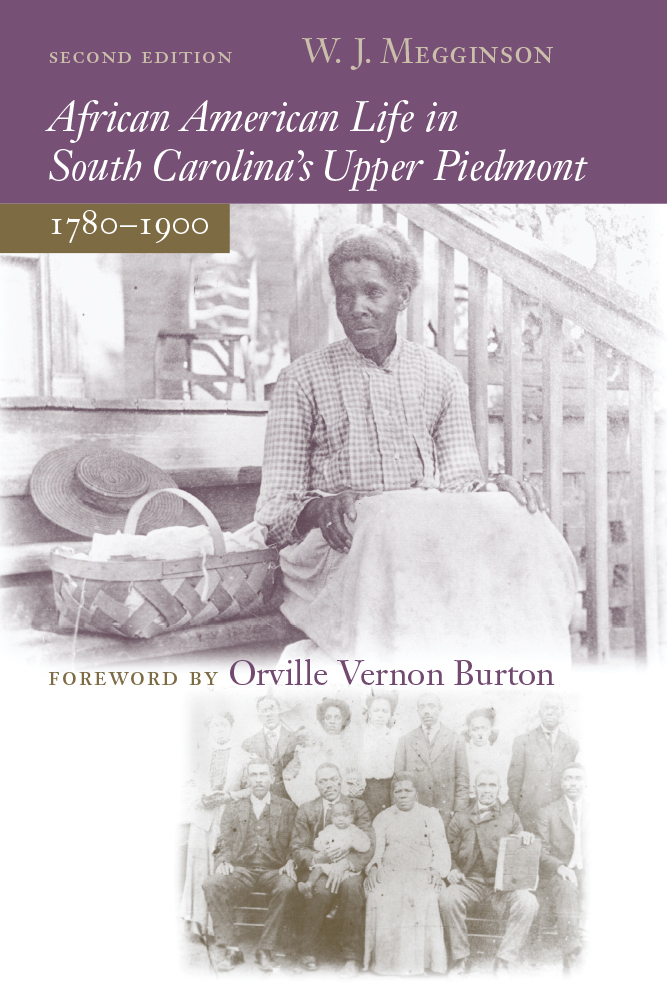 categories: African American Studies, paperback, ebook, Books, South Carolina History & Culture,
Published:
Size:
Pages:
categories: African American Studies, paperback, ebook, Books, South Carolina History & Culture,
Published:
Size:
Pages: 572
Illustrations:
Hardcover ISBN:
Paperback ISBN:
custom_title:
custom_subtitle:
custom_byline1: W. J. Megginson
custom_byline2: foreword by Orville Vernon Burton
custom_bind:
custom_price: $
custom_addtocart:
custom_author_blurb:W. J. Megginson (1943–2020) was a native of Upstate South Carolina. He received his PhD from George Washington University and taught at Arkansas State University, Hendrix College in Arkansas, Drexel University, and La Salle University.
custom_reviews:"By focusing on three counties in the northwest corner of South Carolina, W. J. Megginson illuminates how African Americans interacted with whites and at the same time struggled to sustain their own community. Relying on a broad range of contemporary and statistical evidence, the author offers a new perspective concerning the complex nature of race relations over more than a century in an area where the Black population remained in a minority."—Loren Schweninger, Elizabeth Rosenthal Excellence Professor emeritus, University of North Carolina Greensboro
"This remarkable and totally engrossing piece of scholarship—among the very best works ever published about African American life in the South—stands as a model of local history and research writing. Every page casts new and revealing light on such subjects as race relations and Black religion, education, and social life in the South during the period."—Allen B. Ballard, professor of history and Africana studies emeritus, State University of New York-Albany
custom_awards:
content: A rich portrait of Black life in South Carolina's UpstateEncyclopedic in scope, yet intimate in detail,
African American Life in South Carolina's Upper Piedmont, 1780-1900, delves into the richness of community life in a setting where Black residents were relatively few, notably disadvantaged, but remarkably cohesive. W. J. Megginson shifts the conventional study of African Americans in South Carolina from the much-examined Lowcountry to a part of the state that offered a quite different existence for people of color. In Anderson, Oconee, and Pickens counties—occupying the state's northwest corner—he finds an independent, brave, and stable subculture that persevered for more than a century in the face of political and economic inequities. Drawing on little-used state and county denominational records, privately held research materials, and sources available only in local repositories, Megginson brings to life African American society before, during, and after the Civil War. Orville Vernon Burton, Judge Matthew J. Perry Jr. Distinguished Professor of History at Clemson University and University Distinguished Teacher/Scholar Emeritus at the University of Illinois, provides a new foreword.
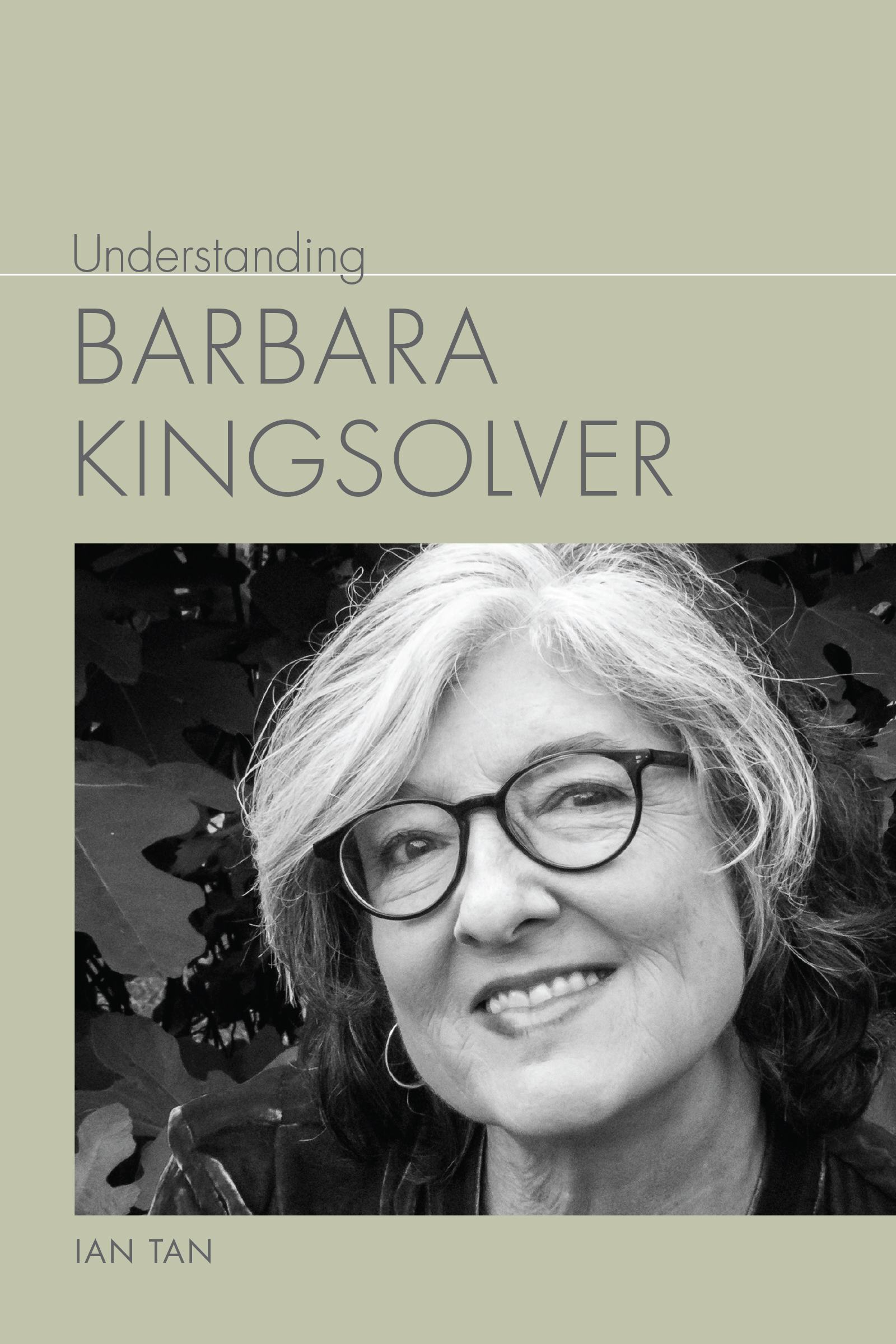 categories: Literary Studies, Understanding Contemporary American Literature, paperback, ebook, hardcover, Books,
Published:
Size:
Pages:
categories: Literary Studies, Understanding Contemporary American Literature, paperback, ebook, hardcover, Books,
Published:
Size:
Pages: 146
Illustrations:
Hardcover ISBN:
Paperback ISBN:
custom_title:
custom_subtitle:
custom_byline1: Ian Tan
custom_byline2:
custom_bind:
custom_price: $
custom_addtocart:
custom_author_blurb:Ian Tan is assistant professor of English, National Institute of Education, Nanyang Technological University, Singapore. He is the author of
Wallace Stevens and Martin Heidegger: Poetry as Appropriative Proximity and
Wallace Stevens and the Contemporary Irish Novel: Order, Form, and Creative Un-Doing.
custom_reviews:"Ian Tan captures the beauty, complexity, and, as significantly, the urgency of Barbara Kingsolver's work in this thoughtful study. In using the lenses of ecocriticism and ecofeminism in his readings of her work, Tan highlights the ethical foundation of Kingsolver's vision while still creating space to probe the rich characters and very human themes that define her oeuvre."—Catherine Seltzer, Virginia Commonwealth University
custom_awards:
content: The most up-to-date and unified study of critically acclaimed and best-selling author Barbara KingsolverIn
Understanding Barbara Kingsolver, Ian Tan situates Kingsolver's oeuvre in an ecocritical and ecofeminist context and argues that her work puts forward an ethics of difference that informs a more egalitarian vision of the world. Following a brief biography, Tan explores ecocriticism as a literary strategy and analyzes Kingsolver's early nonfiction book,
Holding the Line: Women in the Great Arizona Mine Strike of 1983, as an entry point to her thematic interests. Subsequent chapters attend to Kingsolver's nine novels, including her breakout
The Poisonwood Bible and the Pulitzer Prize-winning
Demon Copperhead, and the ways they engage with some of the most important issues of the twentieth and twenty-first centuries, including postcolonialism and climate change. This book shows how Kingsolver gives her readers the aesthetic tools to begin to see the familiar and the ordinary in a different light, allowing idealism to enrich our everyday lives.
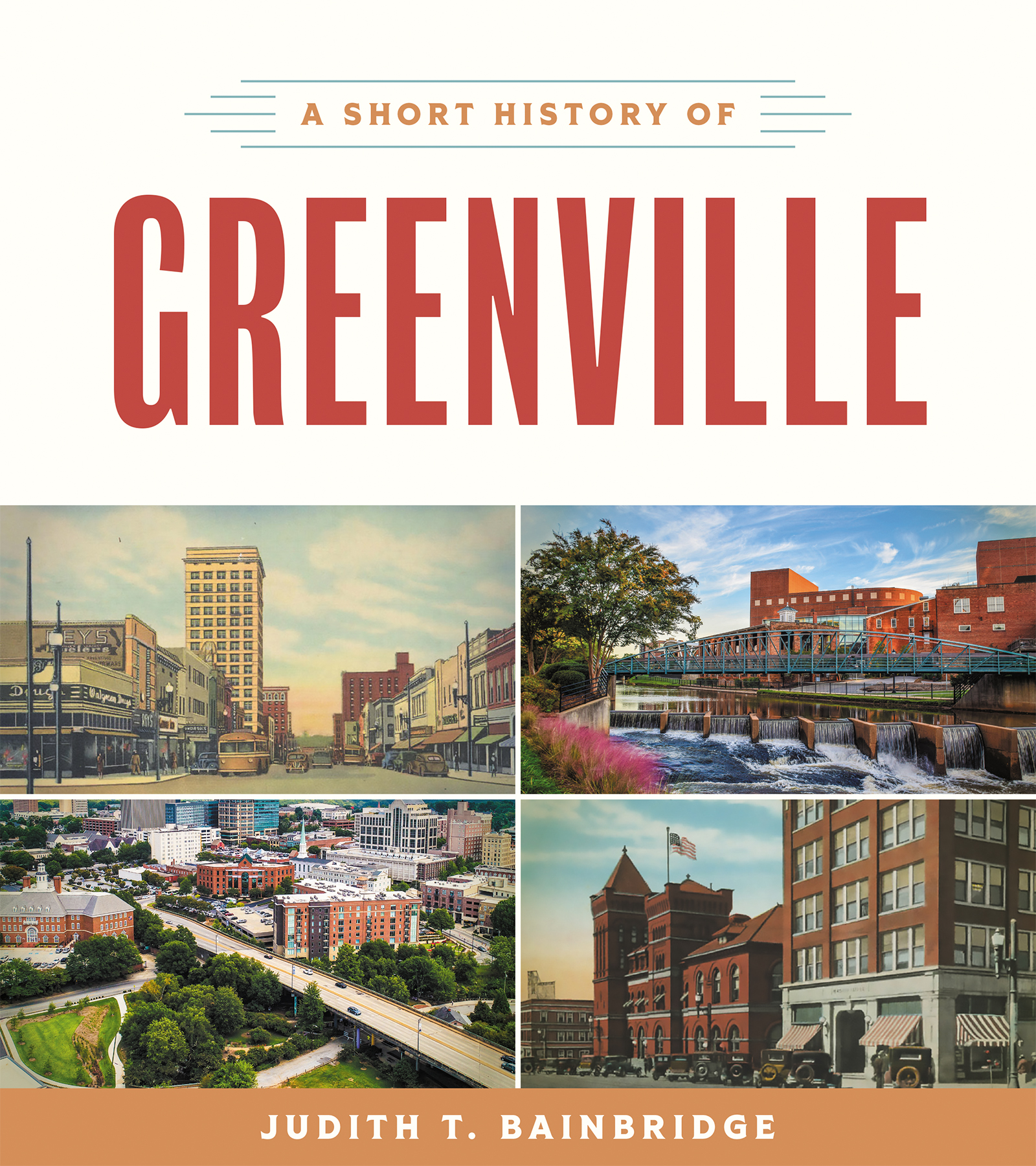 categories: paperback, ebook, Books, South Carolina History & Culture, Travelogue & Essays, Historic Preservation,
Published:
Size:
Pages:
categories: paperback, ebook, Books, South Carolina History & Culture, Travelogue & Essays, Historic Preservation,
Published:
Size:
Pages: 208
Illustrations:
Hardcover ISBN:
Paperback ISBN:
custom_title:
custom_subtitle:
custom_byline1: Judith T. Bainbridge
custom_byline2:
custom_bind:
custom_price: $
custom_addtocart:
custom_author_blurb:Judith T. Bainbridge is professor emerita of English at Furman University. She has written six books about the history of Greenville. From 1999 through 2001 she wrote a biweekly column about Greenville history for the
Greenville News.
custom_reviews:"A fast-paced narrative about a remarkably ambitious Southern city—a city always evolving but over the centuries still as recognizable as its river and falls!"—Greenville Mayor Knox H. White
"Bainbridge has created a panorama of the growth of the city and county of Greenville, written in her usual lively, engaging style. The story is filled with details gleaned from her decades of immersion in local newspapers and records. Read and enjoy!"—A. V. Huff Jr., professor emeritus, history, Furman University
custom_awards:
content: A concise and engaging history that traces Greenville's development from backcountry settlement to one of America's best small citiesToday, Greenville, South Carolina, is regularly included on lists of the best cities and places to live in the United States. The present-day site of technological innovation nestled in the Piedmont of America's Southeast, Greenville is promoted as a future-oriented city and weekend getaway for tourists interested in art, culture, nature, and cuisine. In this lively historical account illustrated with sixty images, author Judith T. Bainbridge invites readers to explore the full expanse of Greenville's history, from its earliest days as Cherokee hunting grounds, to its development as a western outpost settlement and later a nineteenth-century summer resort. From the economic boom brought by the textile industry, to the bust of the Great Depression, and finally to the revitalization of the downtown as a haven for business and tourism in the twenty-first century, Bainbridge charts the development of this dynamic city.
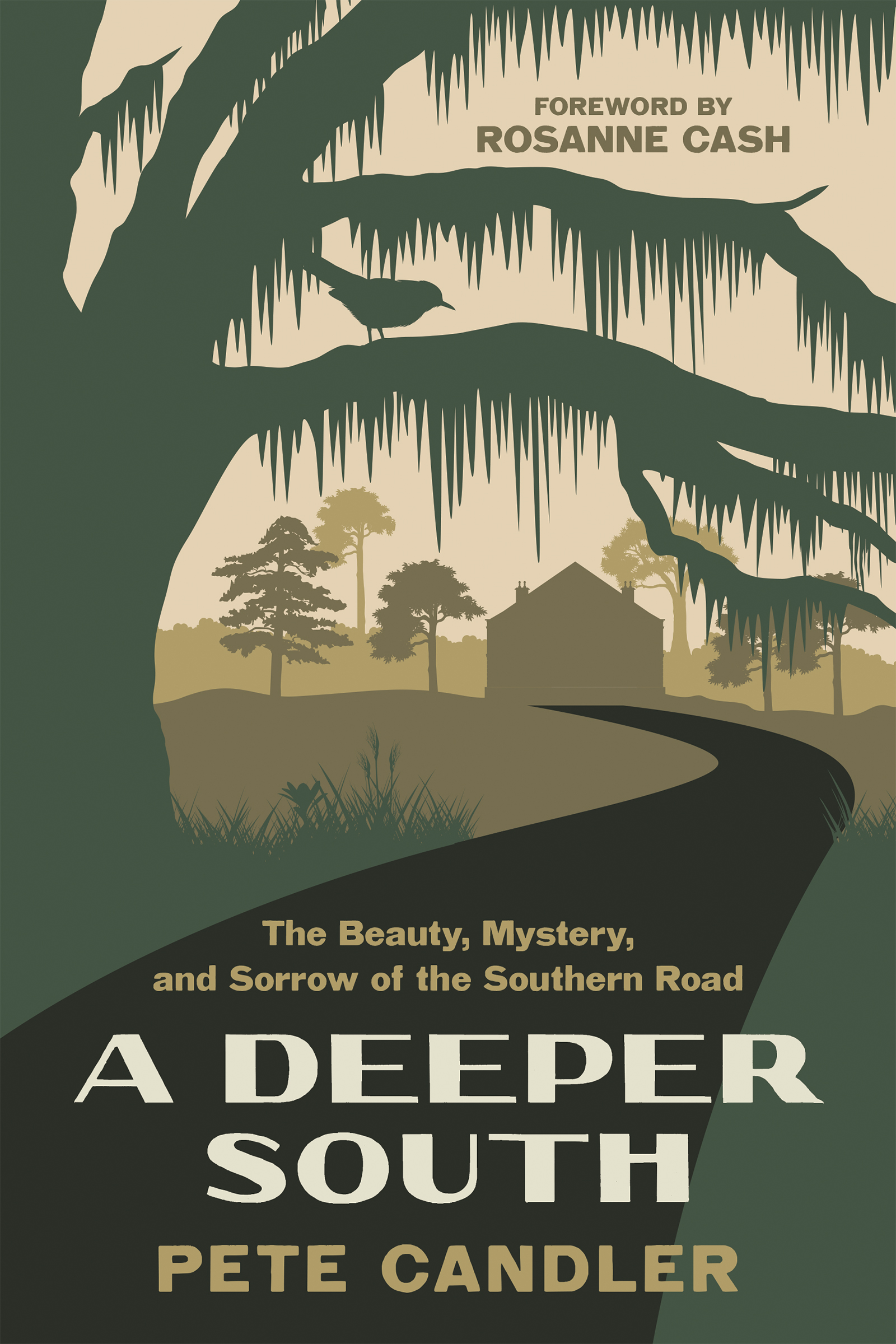 categories: Southern History, paperback, ebook, New & Noteworthy, Books, Travelogue & Essays,
Published:
Size:
Pages:
categories: Southern History, paperback, ebook, New & Noteworthy, Books, Travelogue & Essays,
Published:
Size:
Pages: 400
Illustrations:
Hardcover ISBN:
Paperback ISBN:
custom_title:
custom_subtitle:The Beauty, Mystery, and Sorrow of the Southern Road
custom_byline1: Pete Candler
custom_byline2: foreword by Rosanne Cash
custom_bind:
custom_price: $
custom_addtocart:
custom_author_blurb:Born and raised in Atlanta, Georgia,
Pete Candler is a writer, photographer, and filmmaker whose work has appeared in
Los Angeles Review of Books, Bitter Southerner, Washington Post, and elsewhere. He lives in Asheville, North Carolina.
custom_reviews:"A beautifully crafted journey through the past and current South that will interest Southerners and readers curious about the region and its history."—
Library Journal"A righteous plumbing of suppressed family histories, a vigorous exorcism of the myths and willful ignorance that trouble the land of his birth,
A Deeper South blazes a path through the nostalgia thicket for readers who want to make sense of their inheritances. Candler writes with indignation and empathy, showing us a better way to see the South so that we can better love any place we call home."—John T. Edge, author of
The Potlikker Papers and host of TrueSouth
"[Pete's] work is about the stories the South likes to tell and probably shouldn't and about the stories the South doesn't tell and most definitely should."—Tommy Tomlinson, author of
The Elephant in the Room, and host of the SouthBound podcast
"Part history, part memoir, and part self-discovery, Candler calls on us to face the demons of our past so that we can truly appreciate the region we call home."—Karen L. Cox, author of
Dreaming of Dixie: How the South Was Created in American Popular Culture"Candler explores the truth hidden behind the romance of place and digs deep to seek out harsh truths that have been silenced, overlooked, or obscured by willful blindness. This is a book that will help foster a new way of seeing the South."—W. Ralph Eubanks, author of
A Place Like Mississippi: A Journey Through a Real and Imagined Literary Landscape."A beautifully conceived and executed piece of historical reclamation."—Margaret Edds, former reporter,
Norfolk Virginian-Pilot, and author of
What the Eyes Can't See: Ralph Northam, Black Resolve, and a Racial Reckoning in Virginia"Combining the academic seriousness of Clint Smith's
How the Word is Passed with the car mileage of Tony Horwitz's
Confederates in the Attic, Candler offers an insightful meditation on traveling the South and thinking about its often tragic history."—Evan Kutzler,
H-Slavery
custom_awards:
content: The author's road trips through the American South lead to a personal confrontation with history In
A Deeper South: The Beauty, Mystery, and Sorrow of the Southern Road, Pete Candler offers a travel narrative drawn from twenty-five years of road-tripping through the backroads of the American South. Featuring Candler's own photography, the book taps into the public imagination and the process of both remembering and forgetting that define our collective memory of place. Candler, who belongs to one of Georgia's most recognizable families, confronts the uncomfortable truths of his own ancestors' roles in the South's legacy of white supremacy with a masterful mix of authority and a humbling sense that his own journey of unforgetting and recovering has only just begun.

















































